What I Noticed Today (Genesis 4-7)
Genesis 4
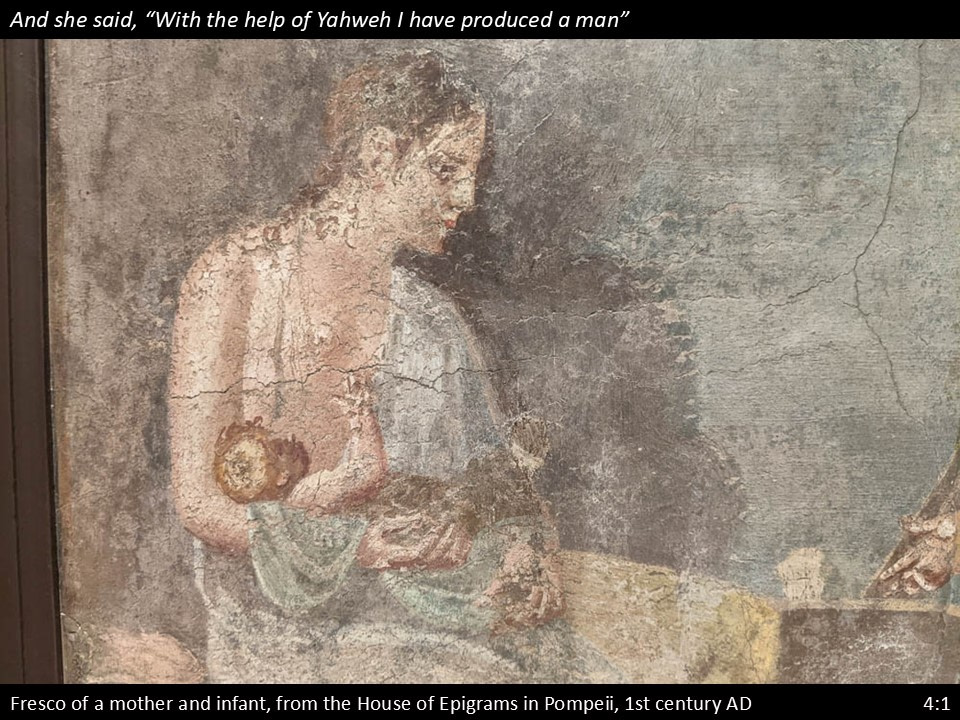
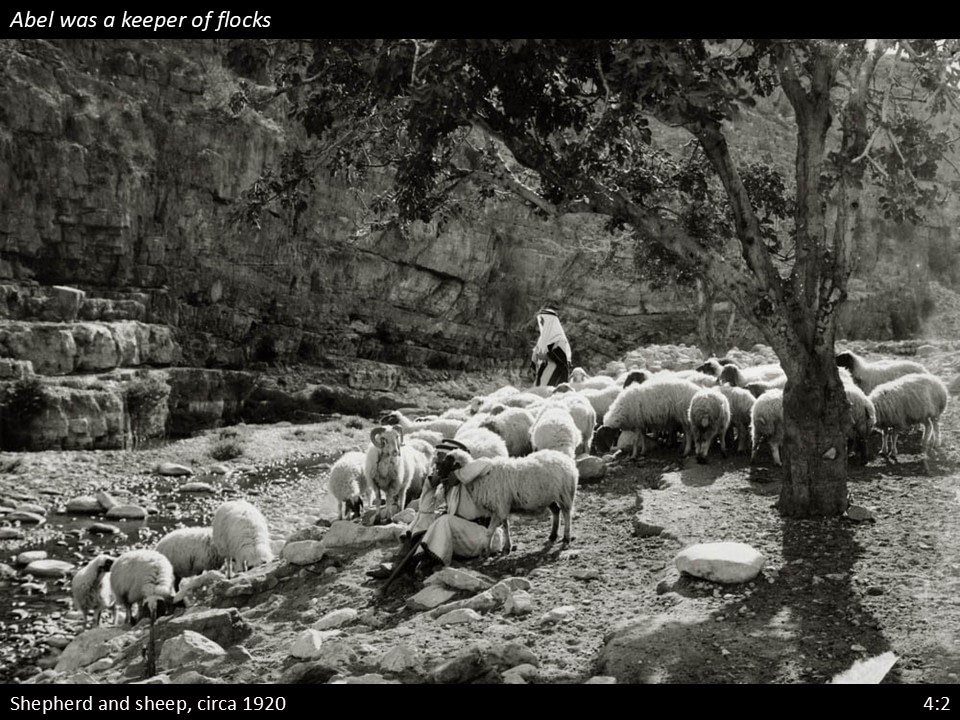

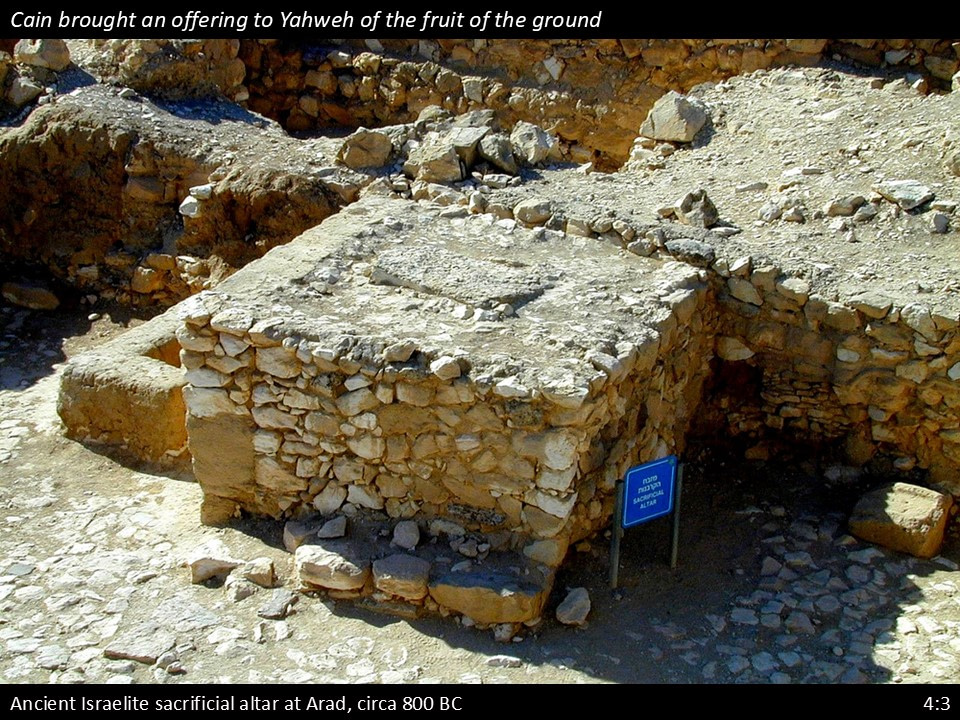
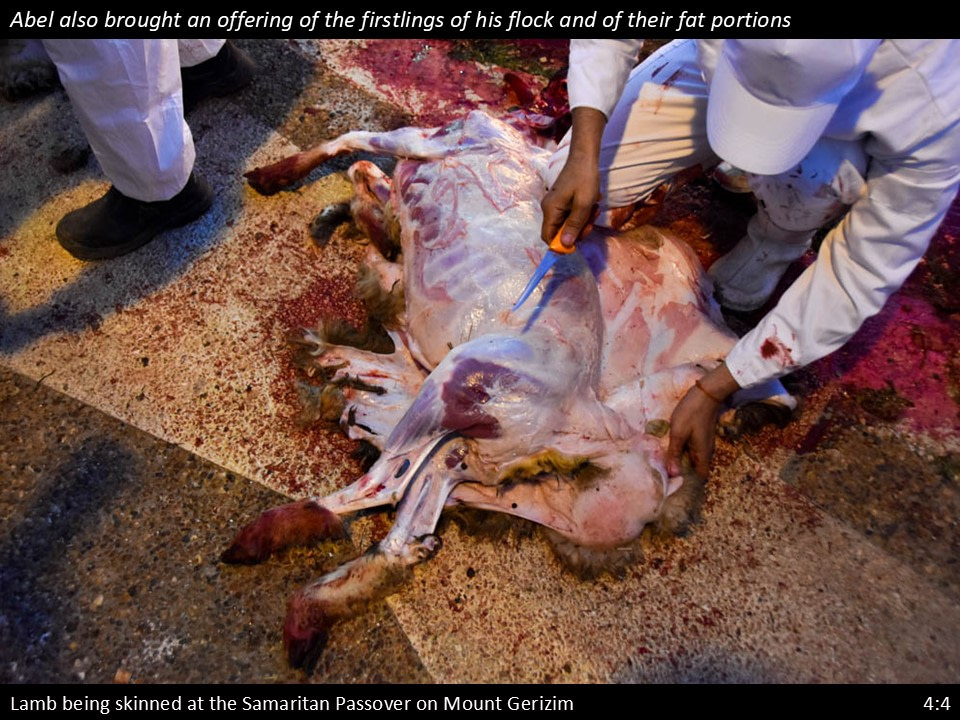
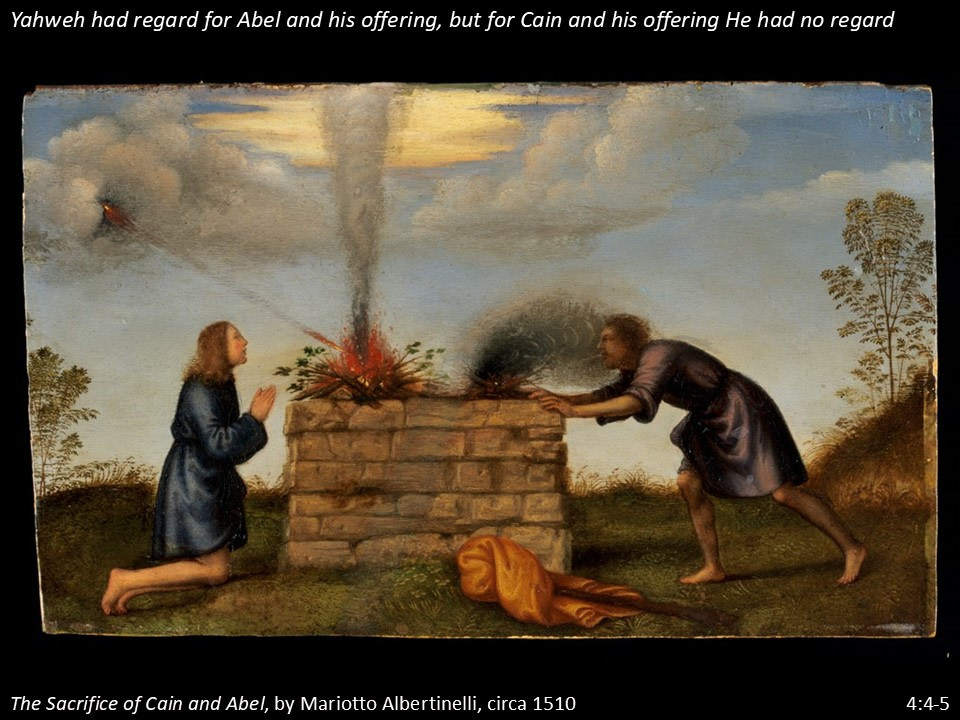
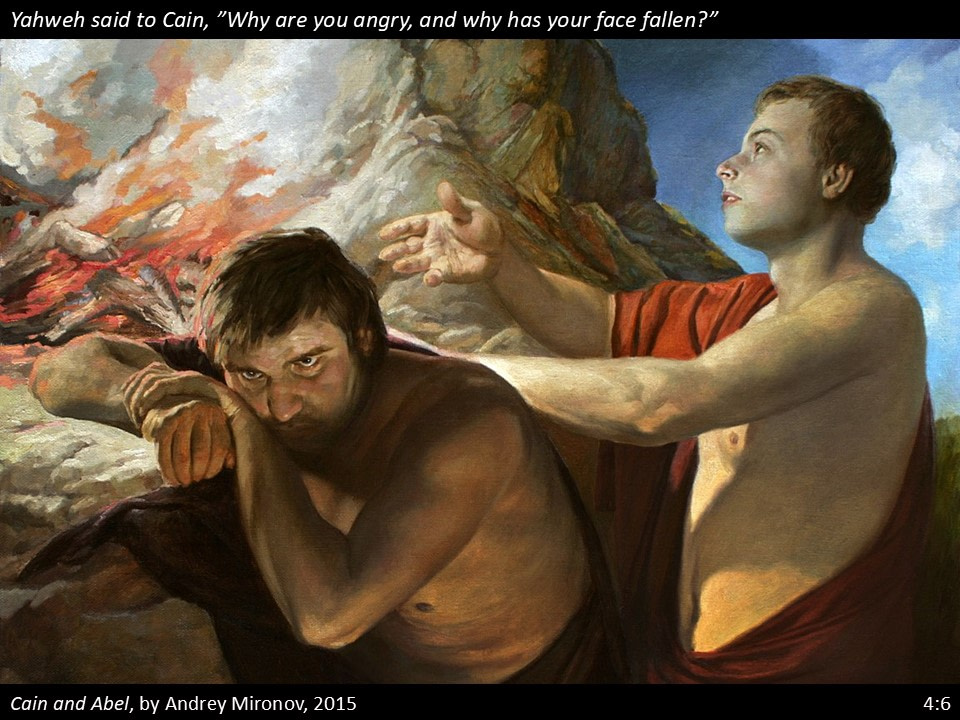
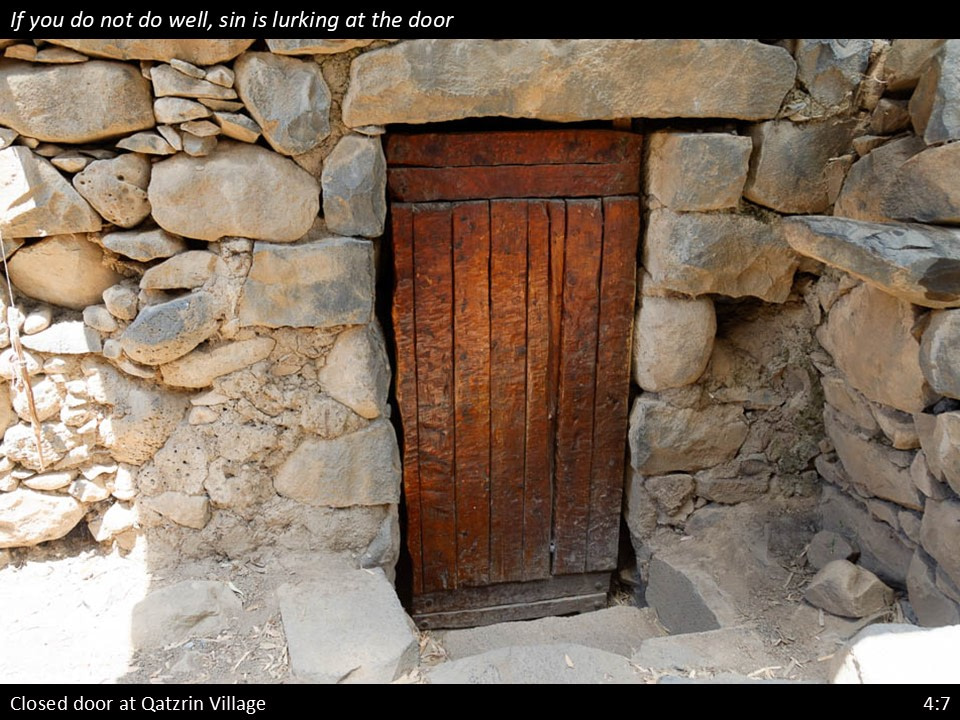
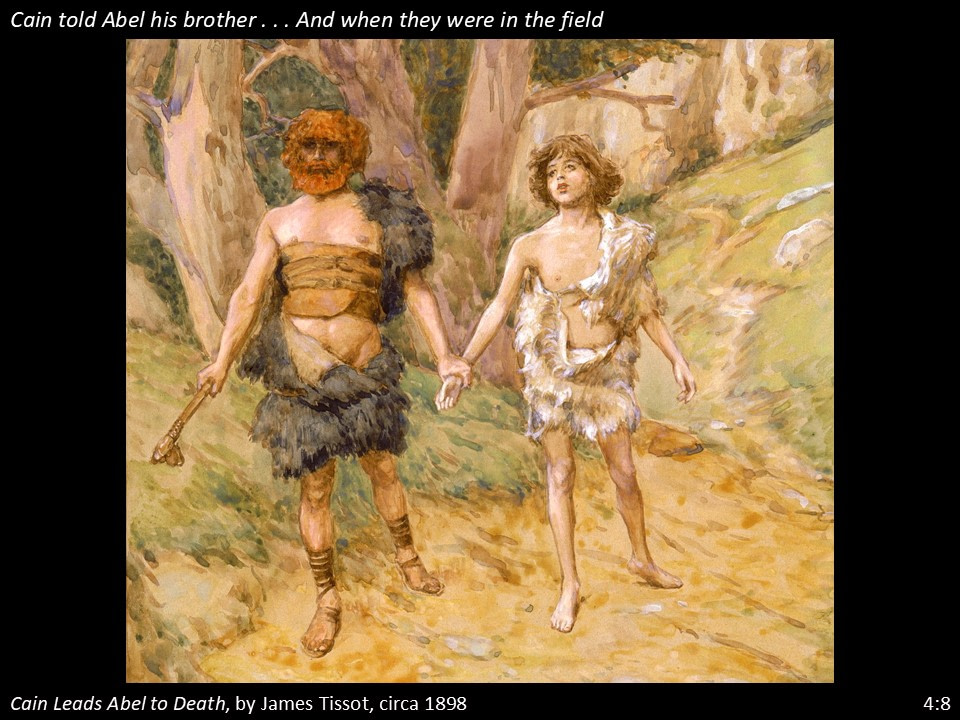
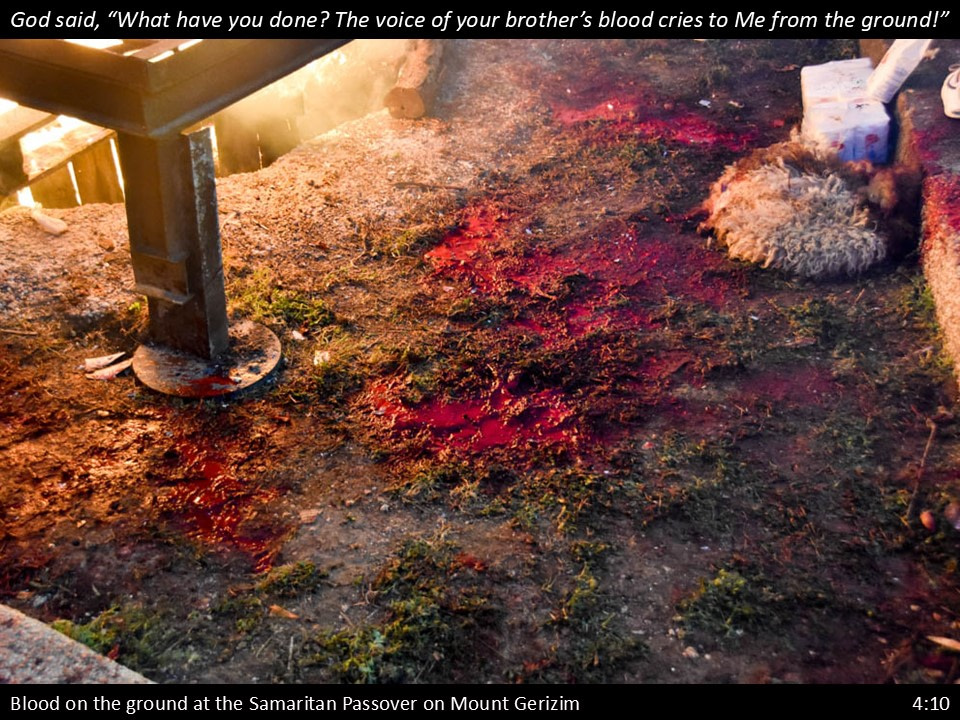
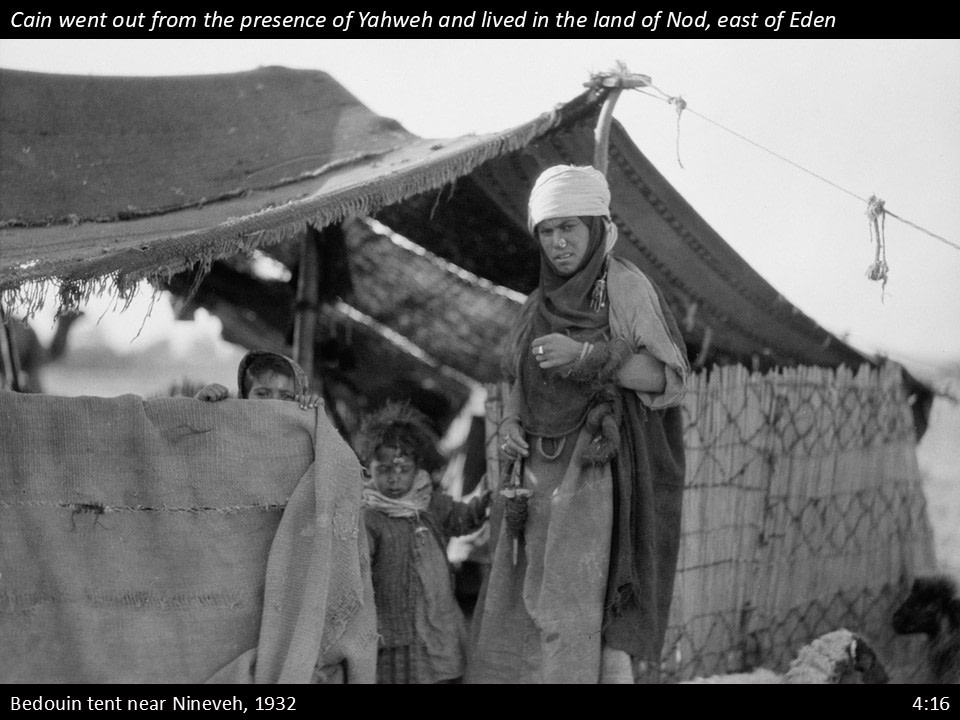
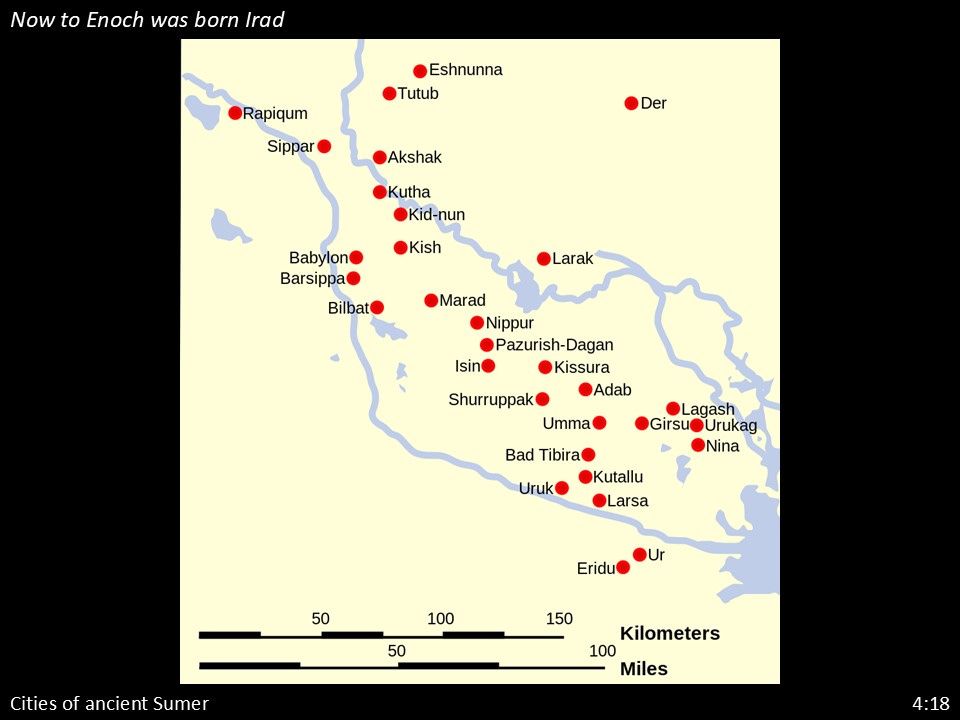
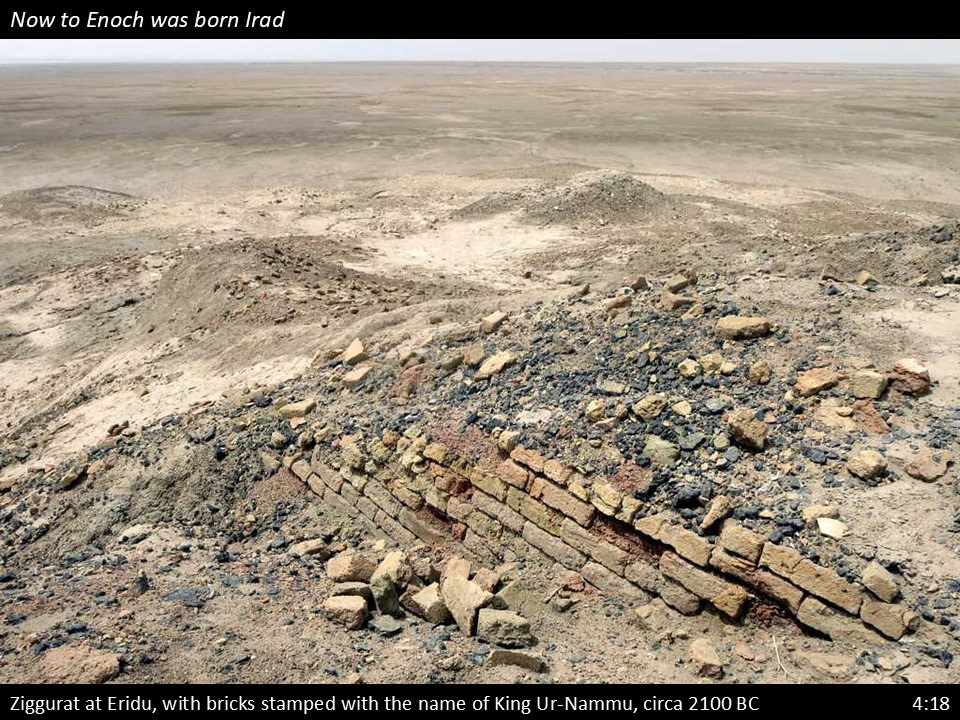
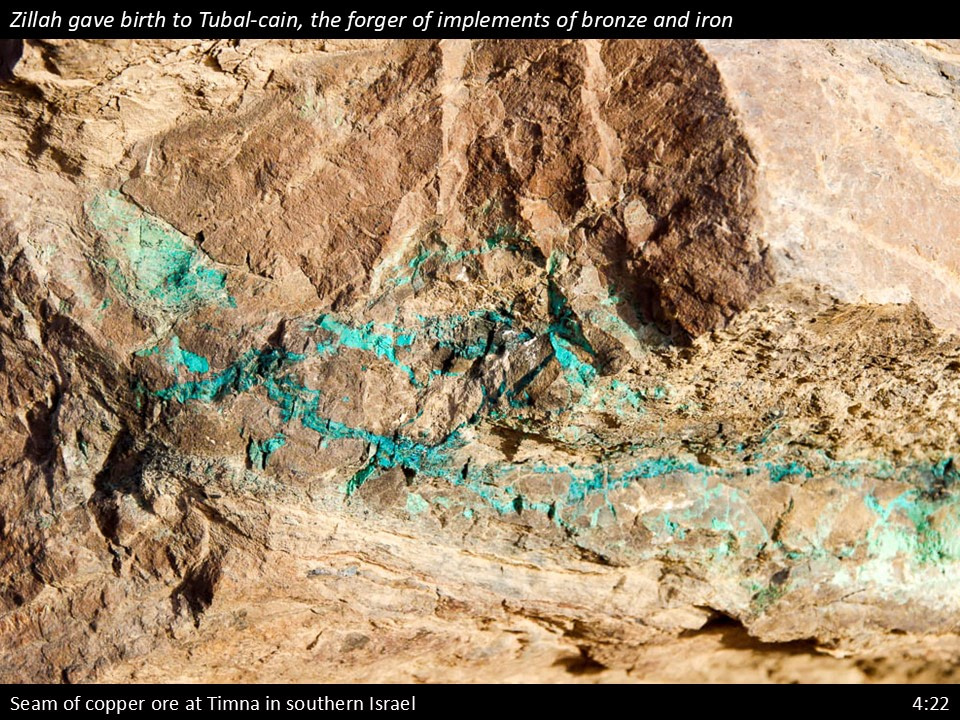
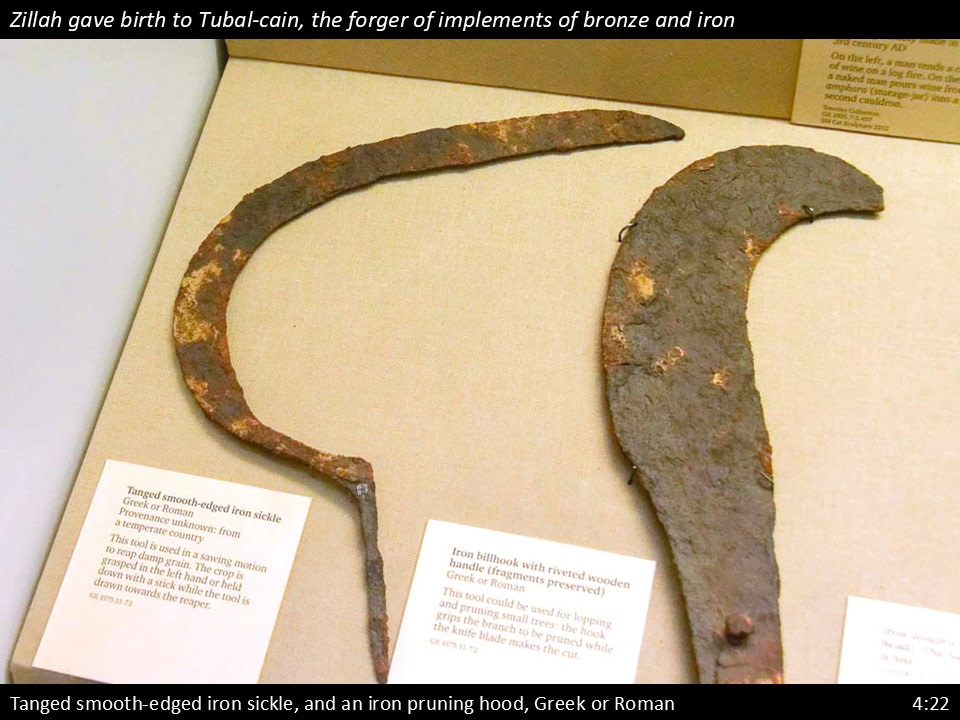
In verses 1-16, Adam and Eve begin their family:
- Eve conceived and gave birth to Cain, “with the Lord’s help.”
- Then she gave birth to Abel.
- Abel became a shepherd, while Cain worked the ground.
- In the course of time, Cain presented an offering of his crops to the Lord.
Note: “In the course of time,” suggests that quite some time may have passed. The Law of Moses provided for both grain and animal offerings to God.
- Abel presented his offering to the Lord from the firstborn of his flock.
- The Lord approved of Abel’s offering, but not of Cain’s, and this made Cain angry and despondent.
- The Lord spoke to Cain, saying if he did right, he would be accepted, but if you do not do right, sin is crouching at your door, and you must rule over it (sin).
Note: God is telling Cain he needs to repent and do right. It seems the issue here is Cain’s jealousy of Abel with Abel’s offering being accepted, while his was rejected.
- Cain invited Abel into the field and attacked and killed him there.
- The Lord questioned Cain about Abel’s whereabouts, but Cain lied to the Lord.
- The Lord then confronted Cain directly, saying Abel’s blood cries out to Him from the ground.
- The Lord then cursed Cain, saying he the ground would never be productive for him again, that he would be a restless wanderer for the rest of his life.
- Cain pleaded with God saying the punishment was too harsh that anyone who found him would surely kill him.
- The Lord protected Cain by placing a mark on his forehead, warning anyone that might kill Cain; they would suffer seven times the vengeance.
- Then Cain left the Lord’s presence and lived in the land of Nod, east of Eden.
In verses 17-26, the line of Cain is described:
- Cain’s wife conceived and gave birth to Enoch. Cain built a city and named it after his son.
Note: God had commanded Cain to be a wanderer, so building and living in a city was another act of disobedience to God.
- Enoch fathered Irad, who fathered Mehujael, who fathered Methushael, who fathered Lamech.
- Lamech had two wives, one named Adah and the other named Zillah.
- Adah bore Jabal, who became the father of nomadic herdsmen. His brother, Jubal, was the father of all who played musical instruments.
- Zillah bore Tubal-Cain, who became a metal worker.
- Lamech told his wives he had killed a man in self-defense for wounding him and a young man for striking him. He claimed since God avenged Cain 7 times, God would avenge him 77 times.
- Adam was intimate with Eve, and she gave birth to Seth, who she said, was a replacement from God for Abel, whom Cain killed.
- Seth fathered Enosh.
- At this time, people started calling on the name of Yahweh.
Note: “Yahweh” is God’s personal name (Exodus 3:15).
Genesis 5
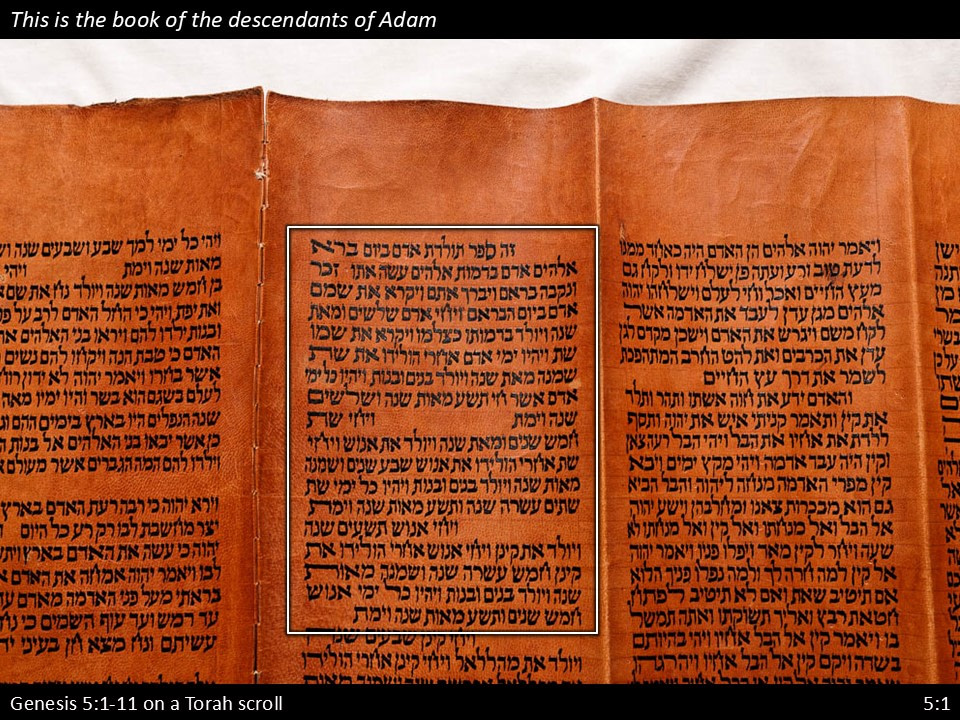
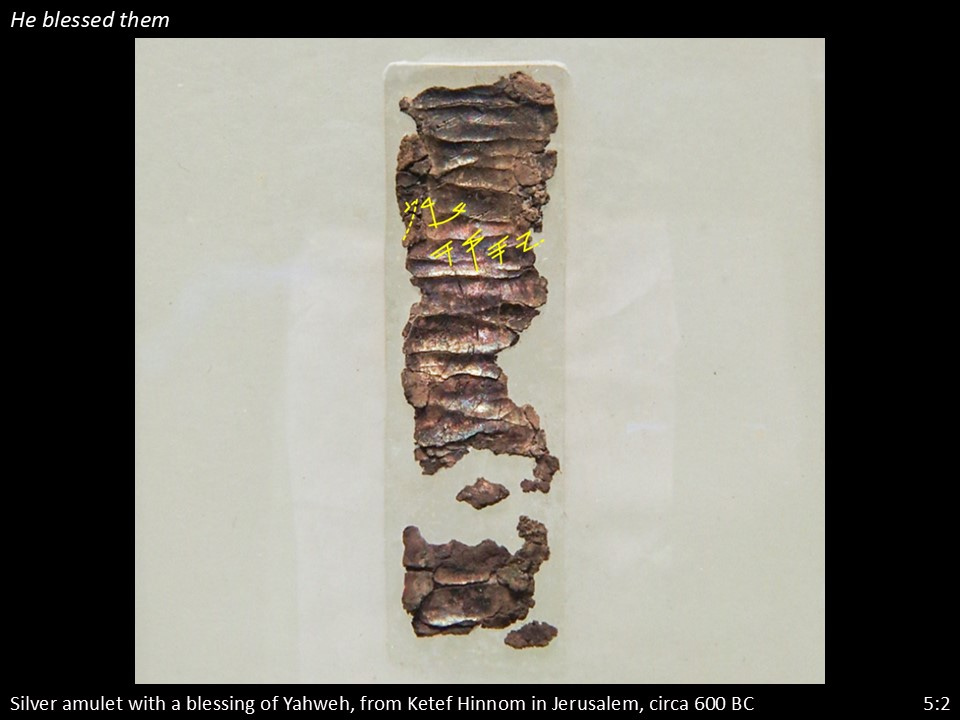
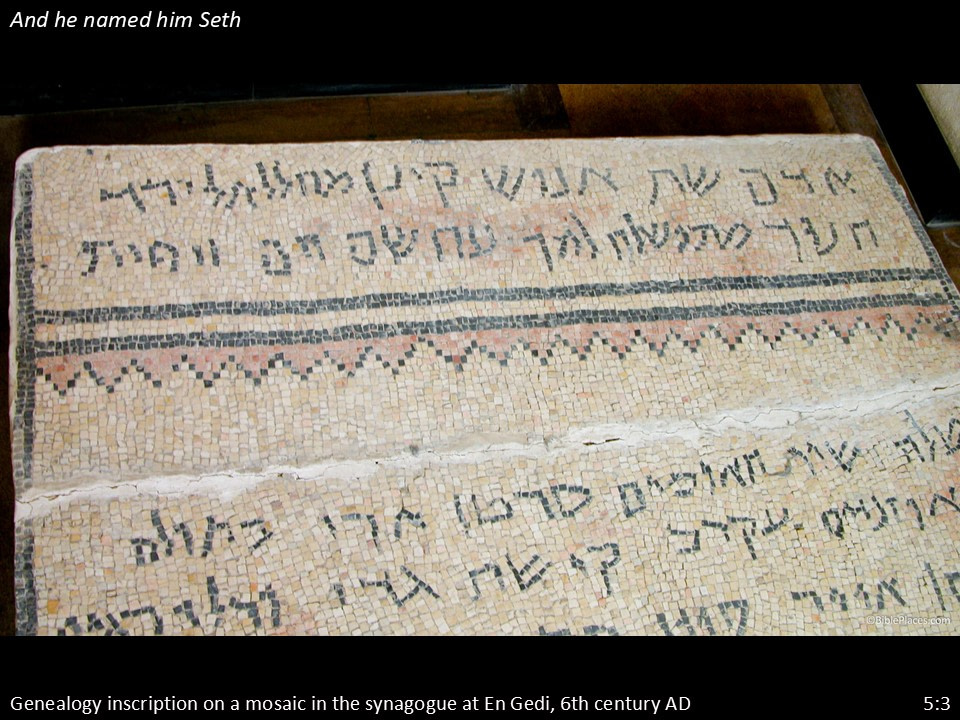
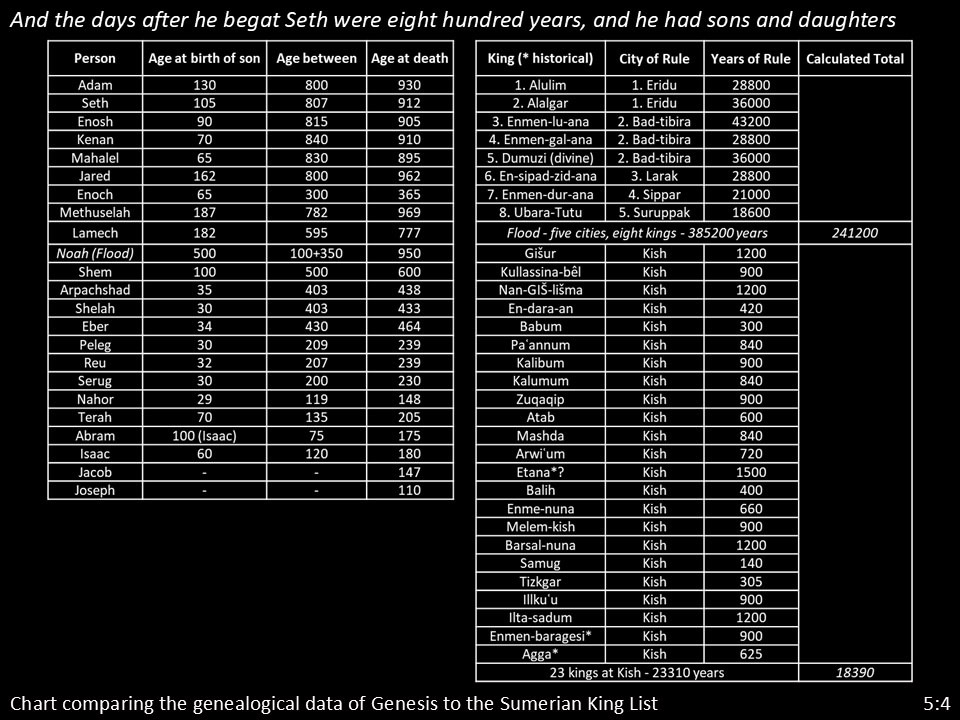
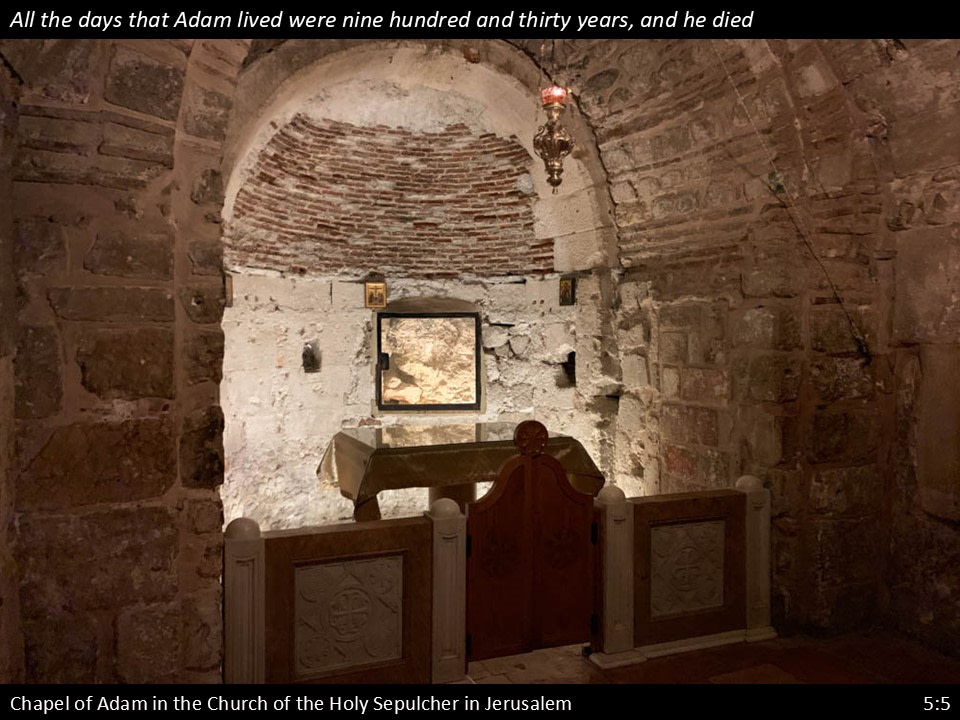
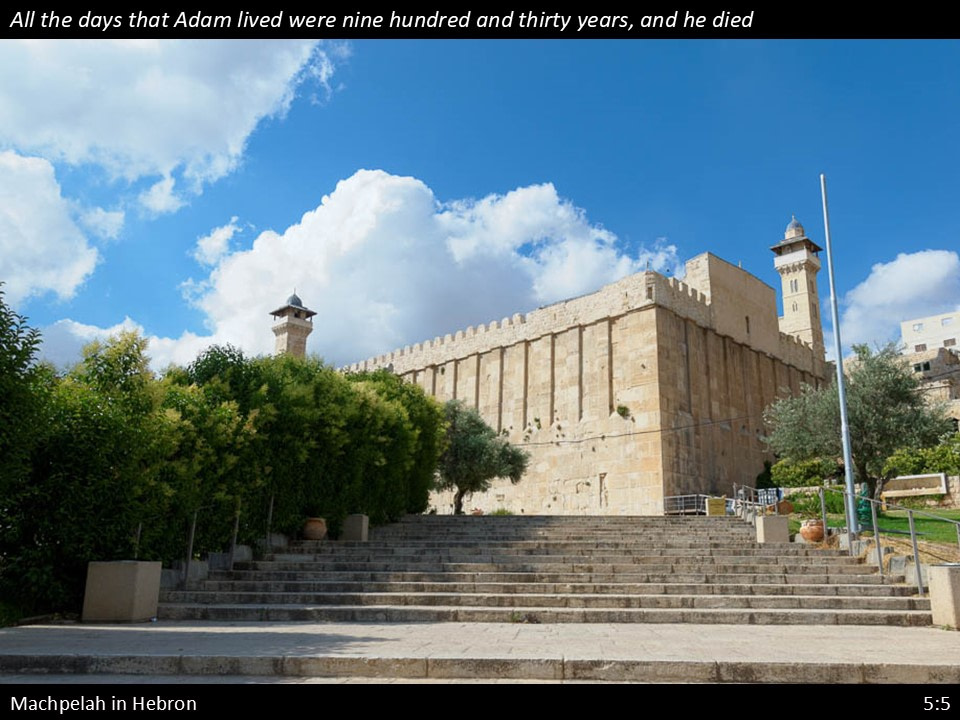
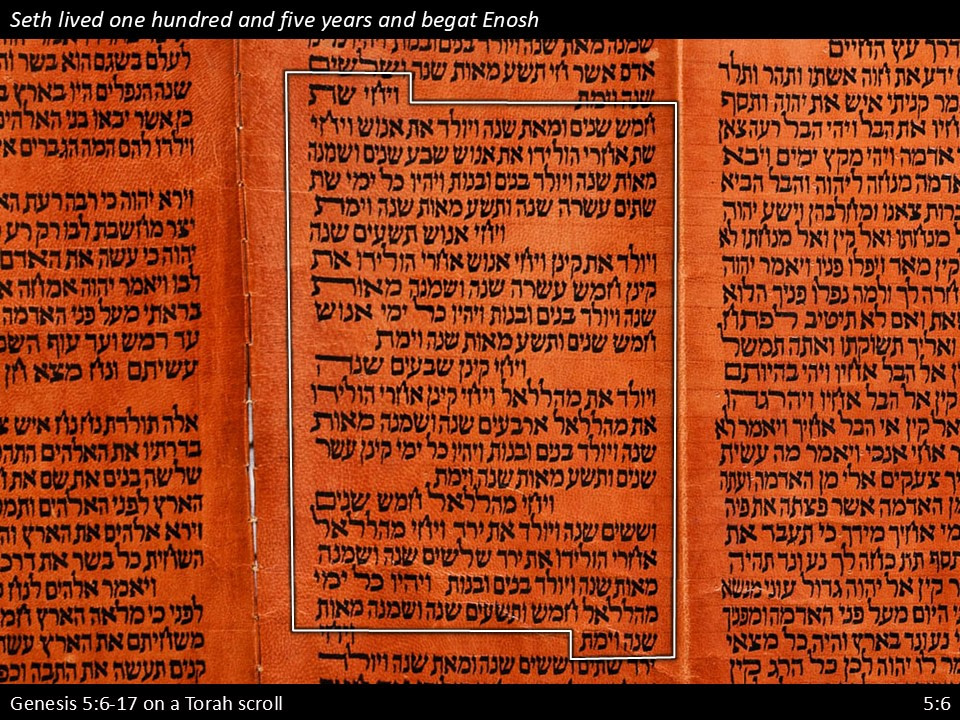
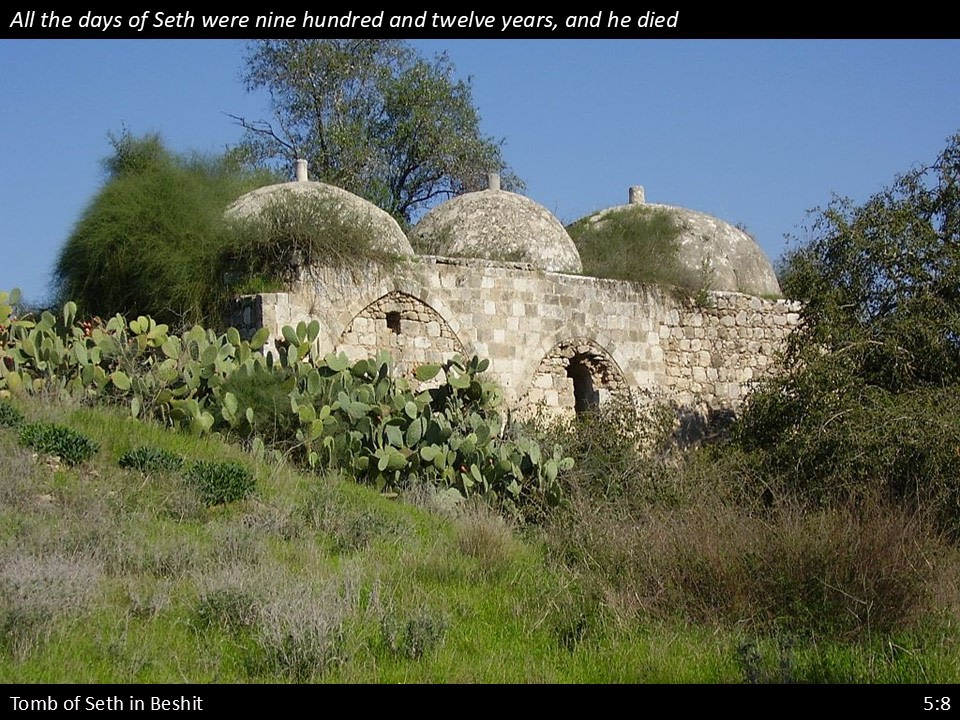
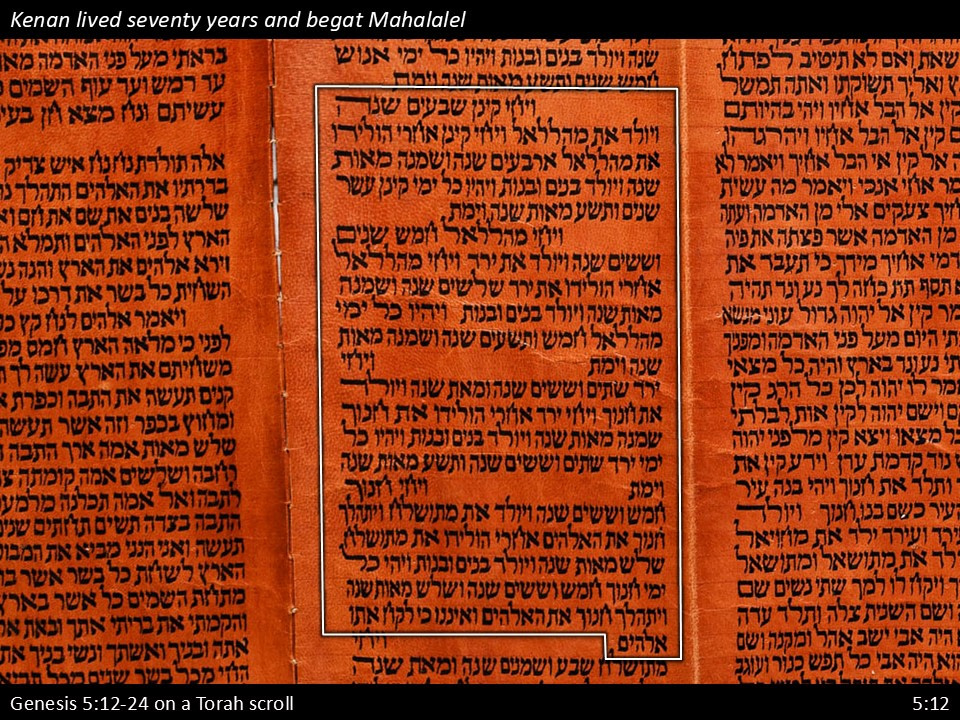
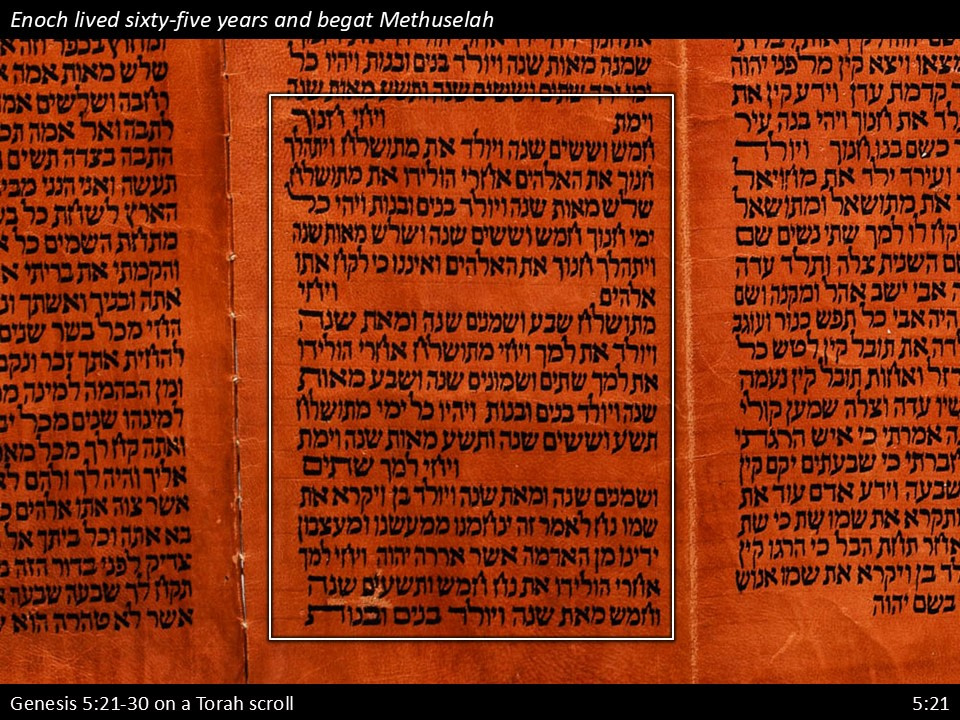
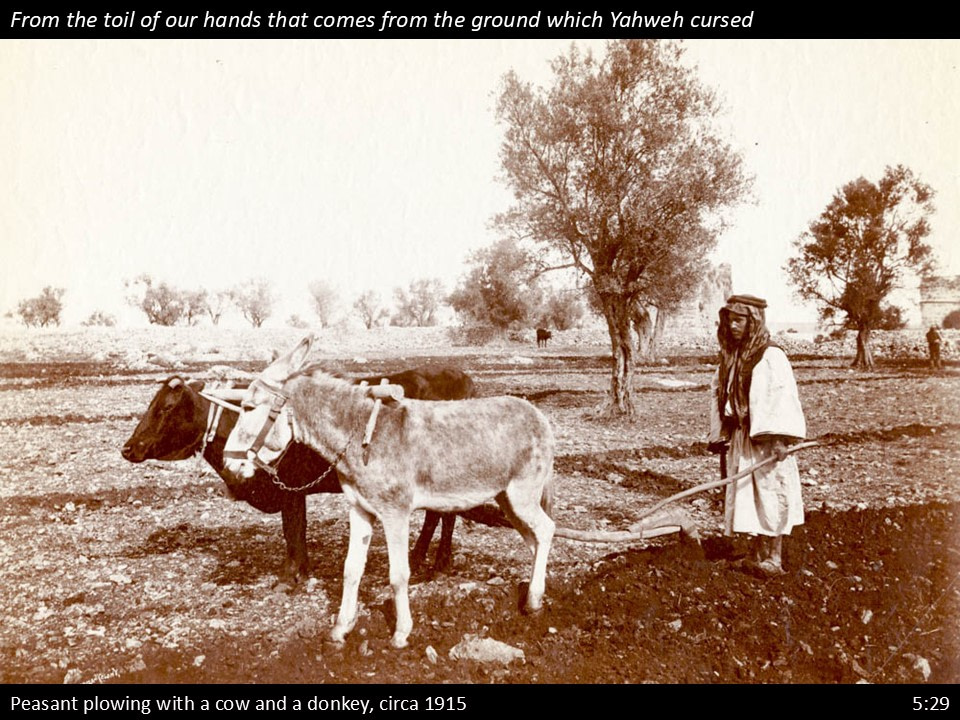
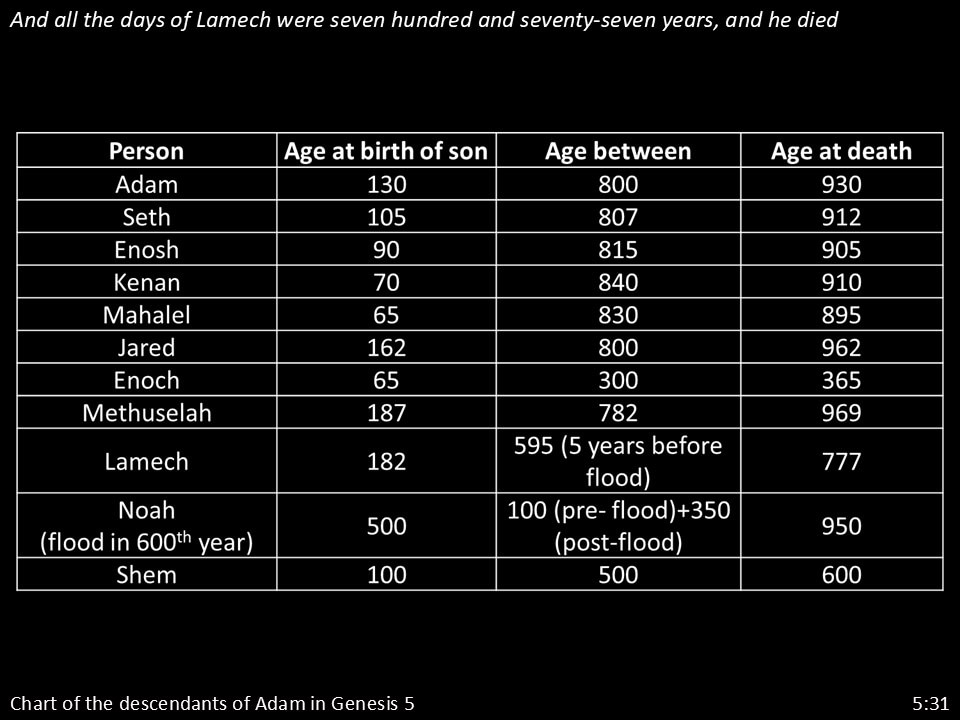
In verses 1-32, the line of Adam’s descendants from Seth through Shem, Ham, and Japheth are described:
- Adam fathered a son in his likeness and named him Seth, and he fathered other sons and daughters. Then he died.
- Seth fathered Enosh and other sons and daughters. Then he died.
- Enosh fathered Kenan, and other sons and daughters. Then he died.
- Kenan fathered Mahalalel, and other sons and daughters. Then he died.
- Mahalalel fathered Jared, and other sons and daughters. Then he died.
- Jared fathered Enoch, and other sons and daughters. Then he died.
- Enoch fathered Methuselah and fathered other sons and daughters. Enoch walked with God; then, he was not there because God took him.
Note: The lifespans of each succeeding generation decreased steadily from Adam through Enoch.
- Methuselah fathered Lamech and had other sons and daughters. Then he died.
Note: This is not the same Enoch who was the son of Cain mentioned in Genesis 4:17, or the same Lamech mentioned in 4:18.
- Lamech fathered Noah and had other sons and daughters. Lamech hoped Noah would bring relief from the curse of God on the ground. Then he died.
- Noah fathered Shem, Ham, and Japheth.
Note: The repetition of the phrase, “then he died” is a reminder of God’s curse (Genesis 3:19) upon mankind: the wages of sin is death.
Genesis 6
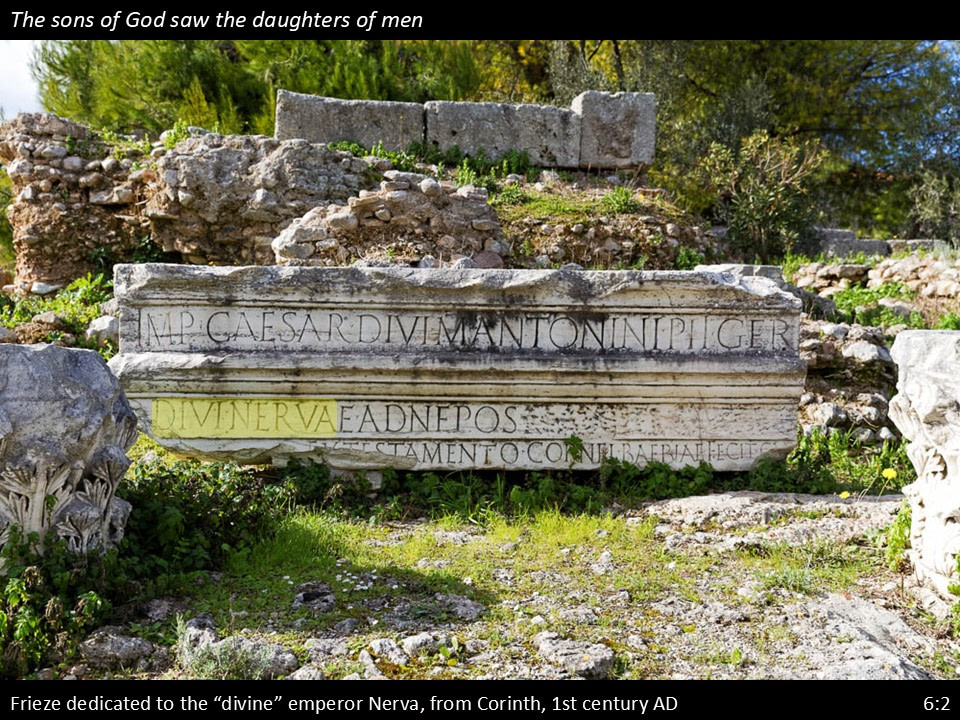
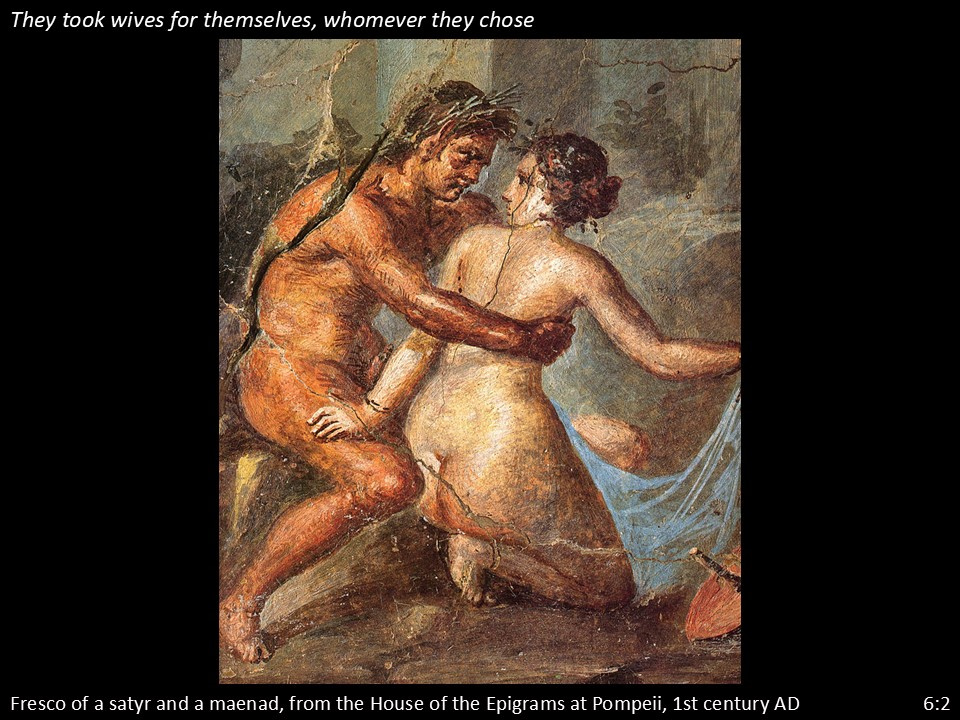
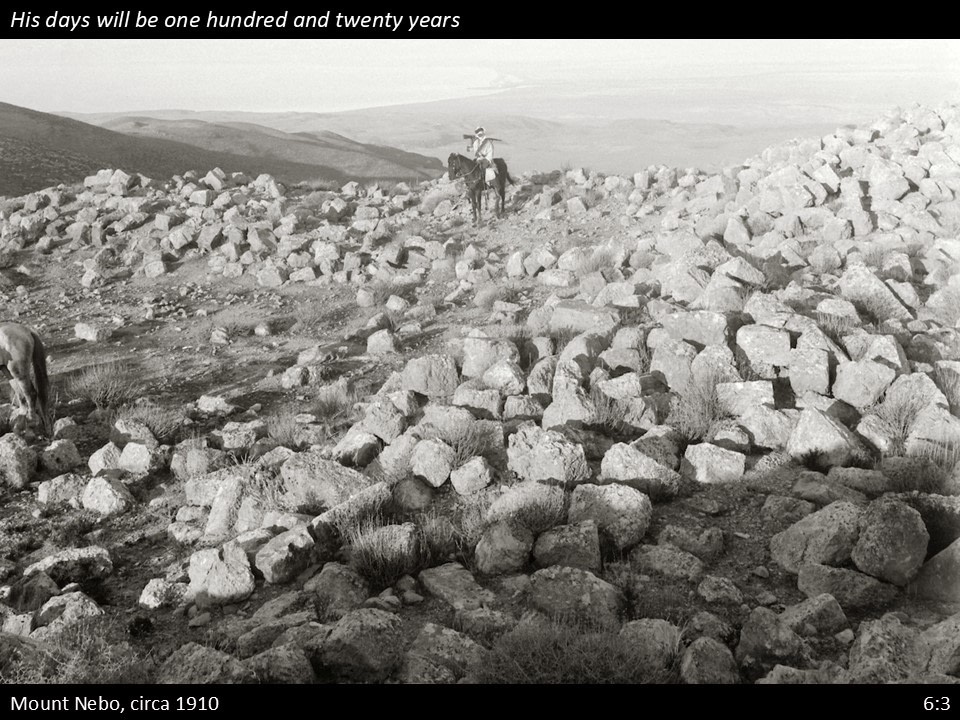
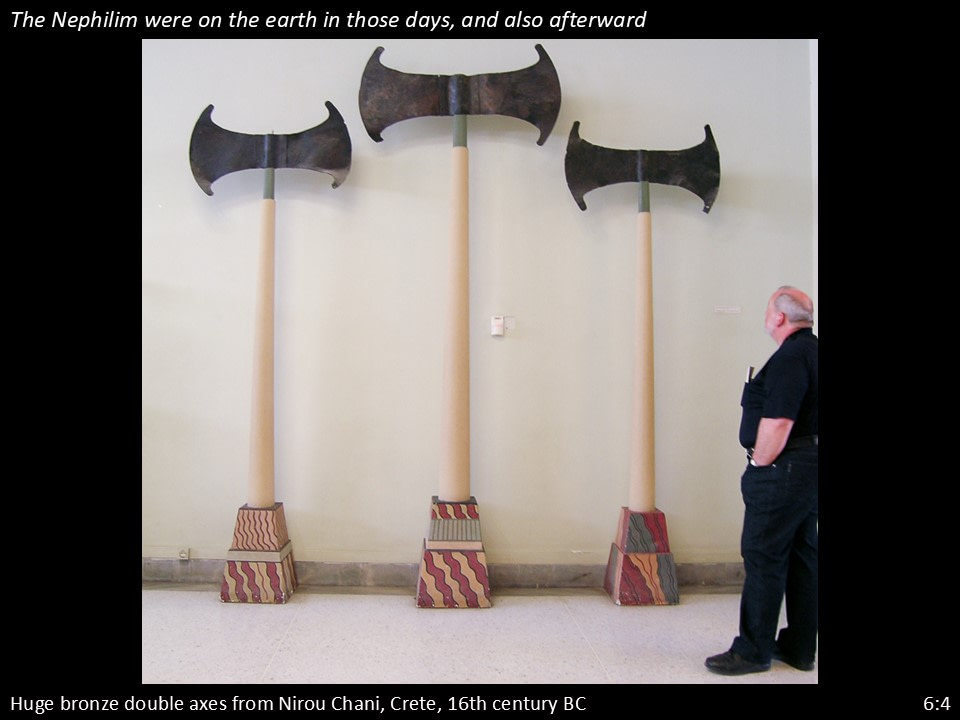
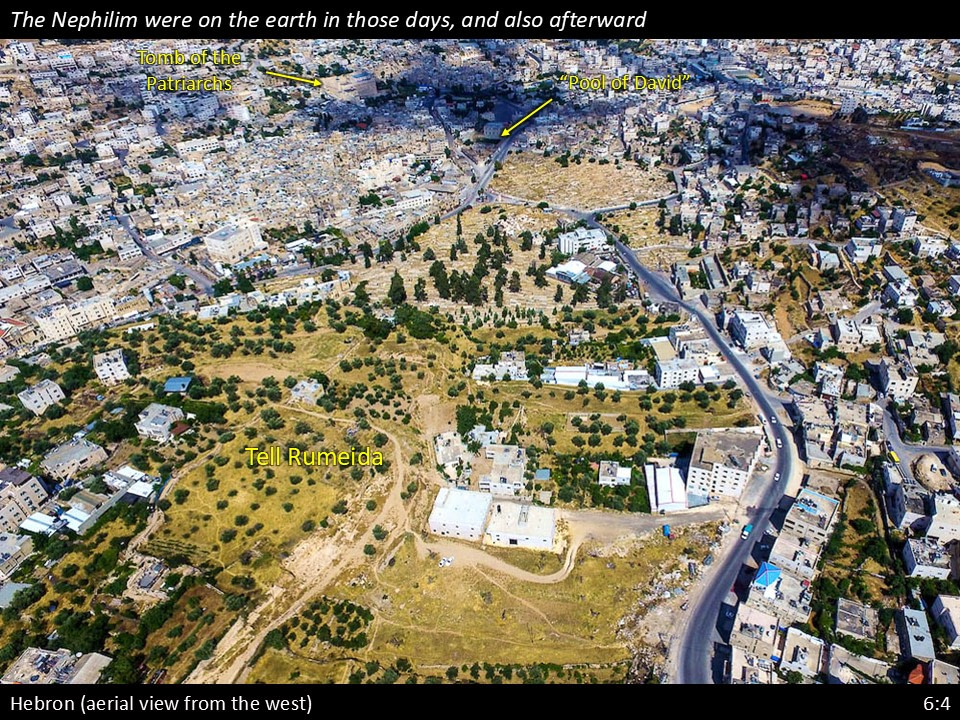
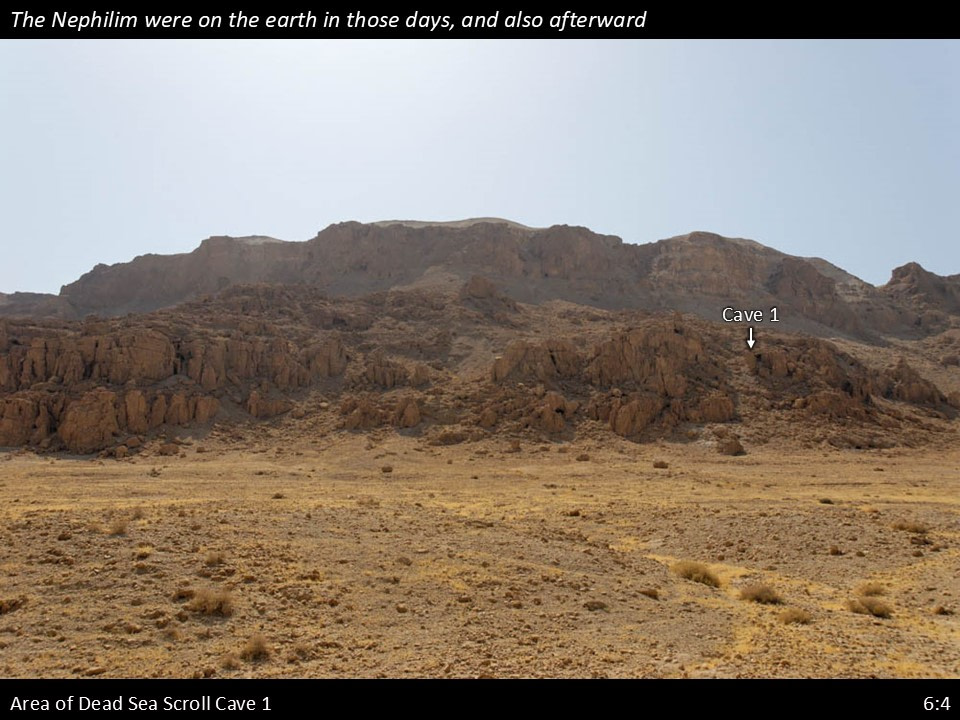
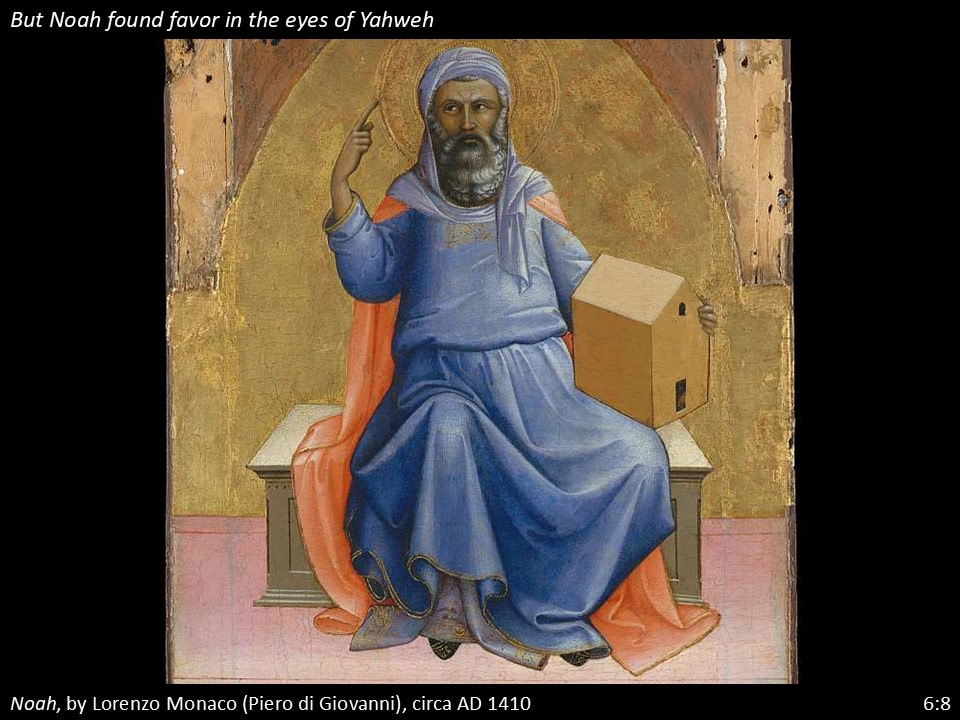
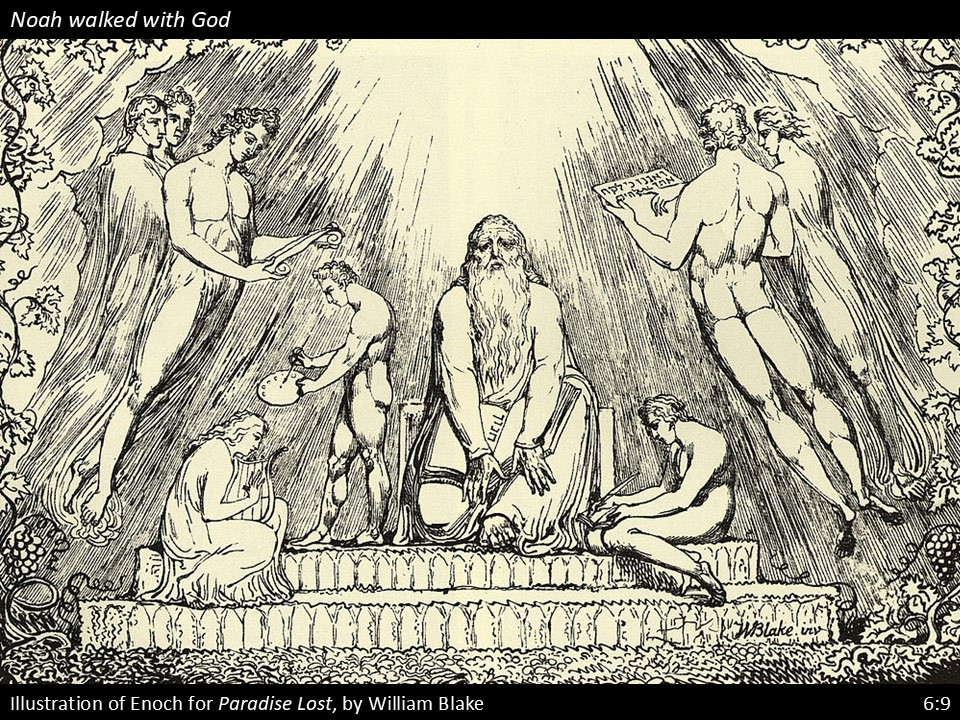
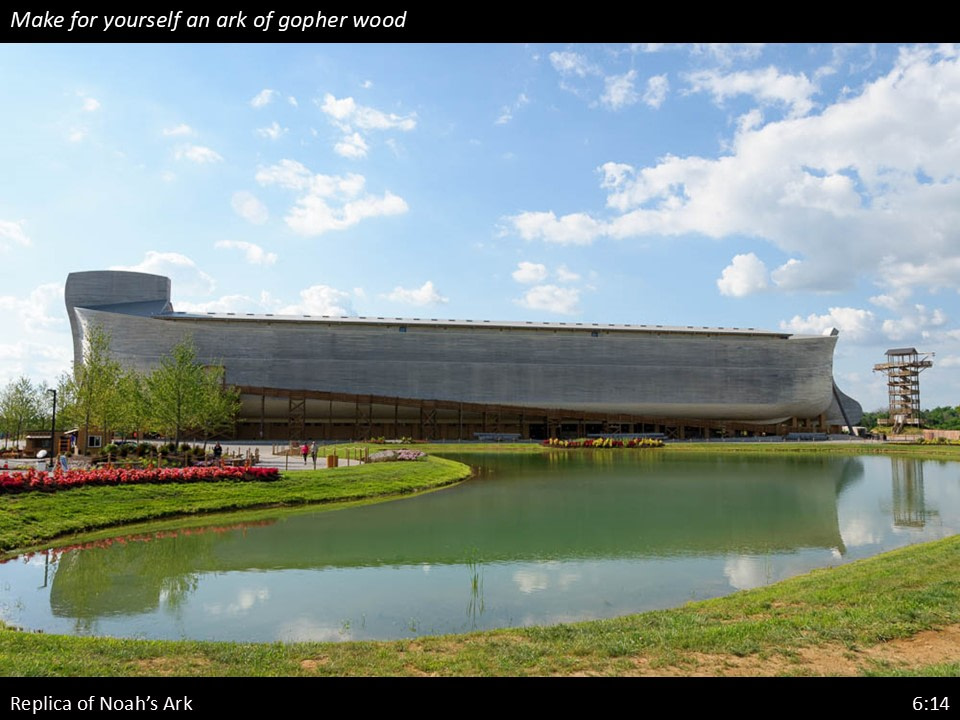
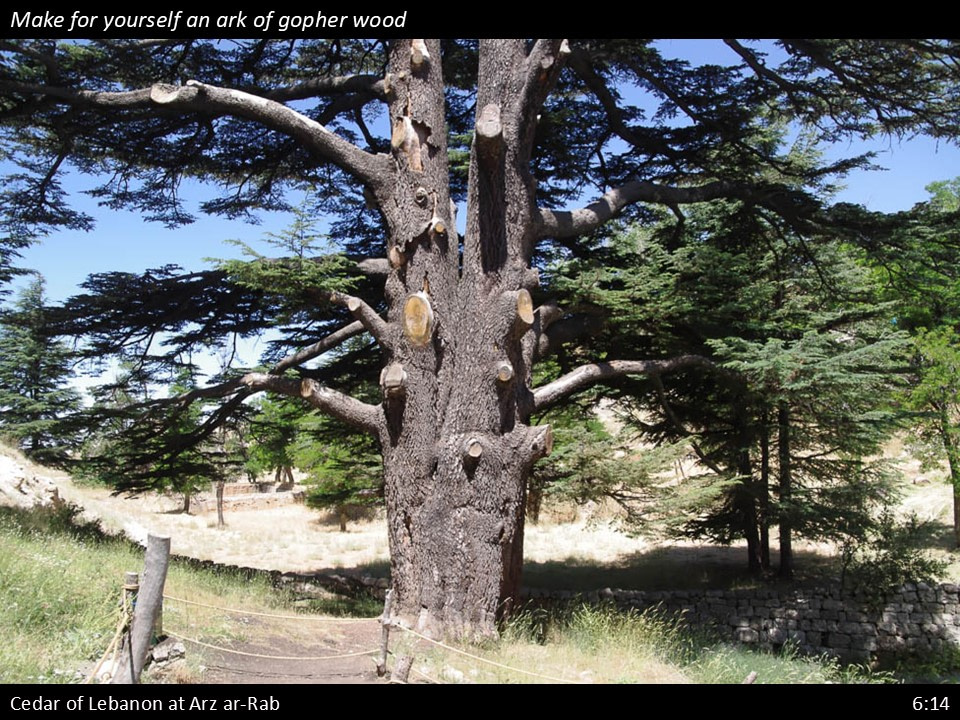
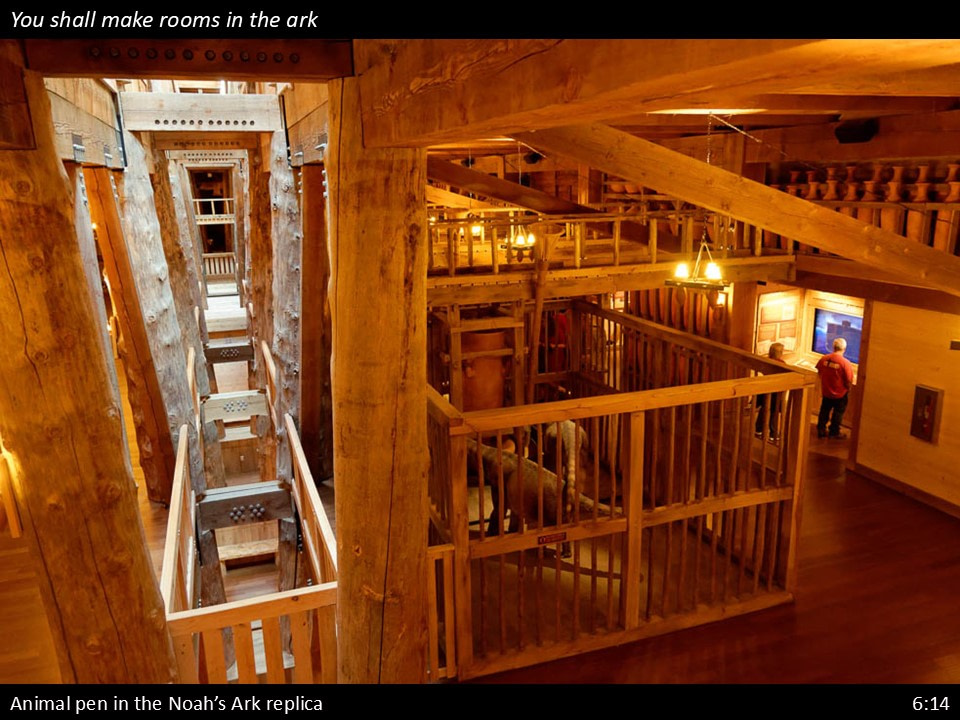
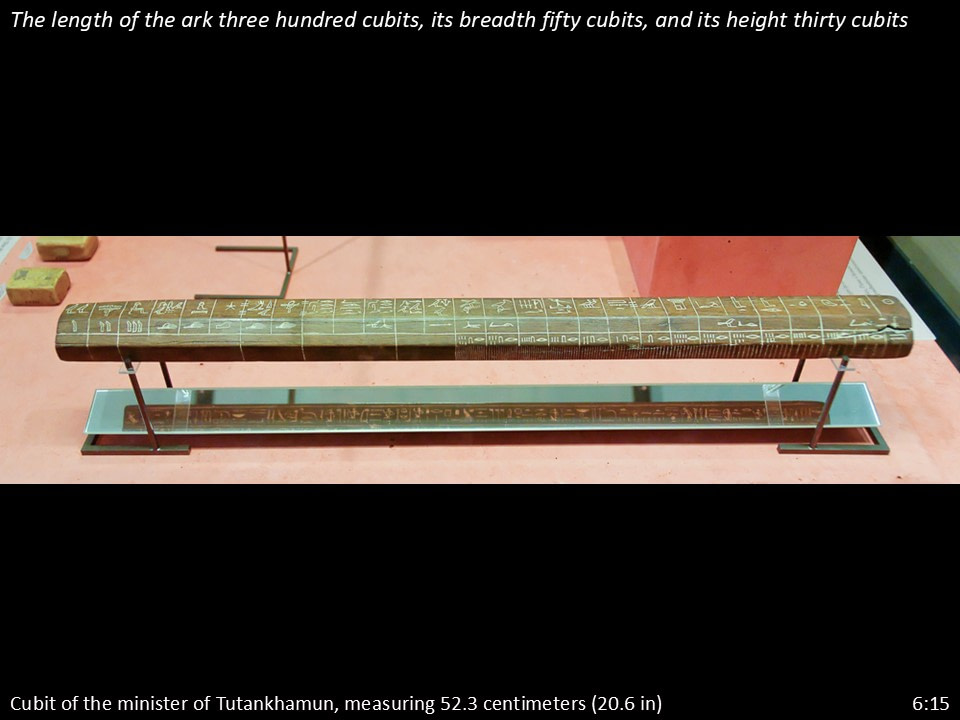
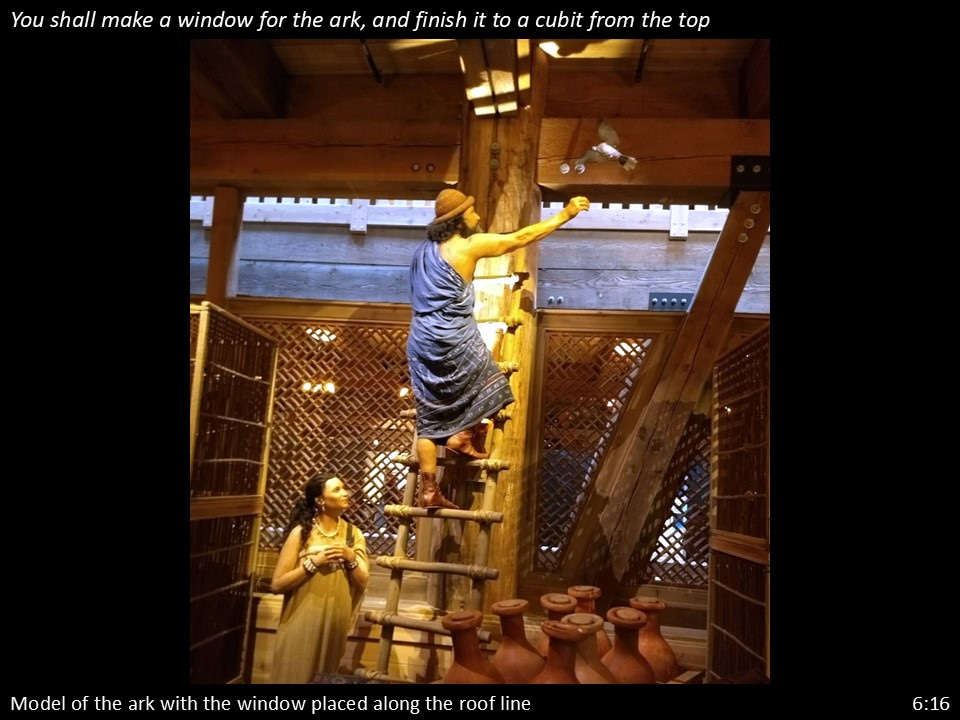
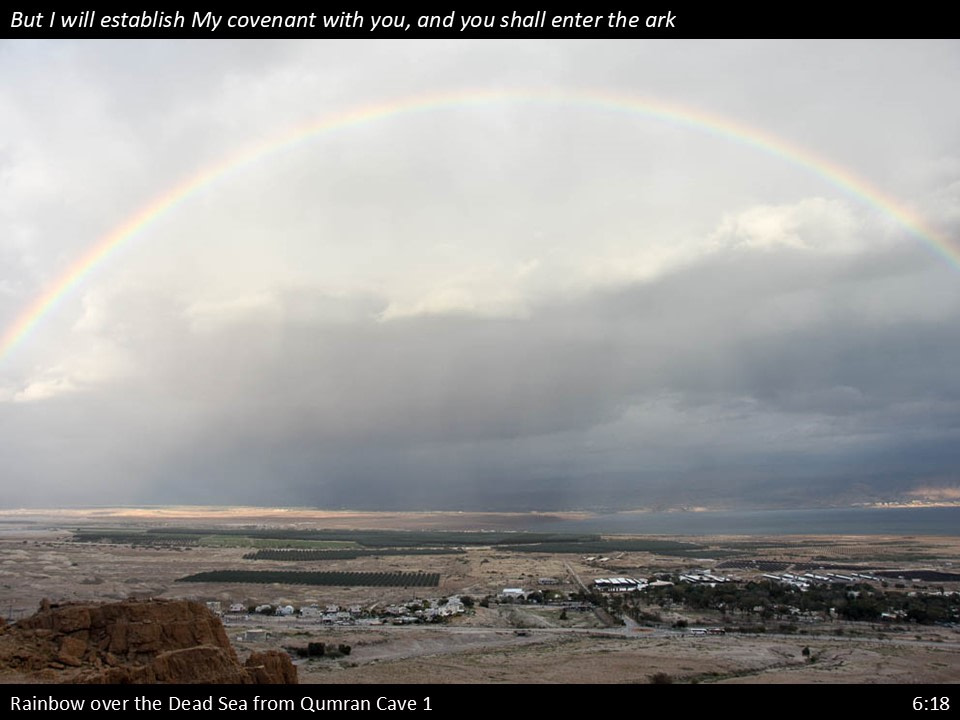
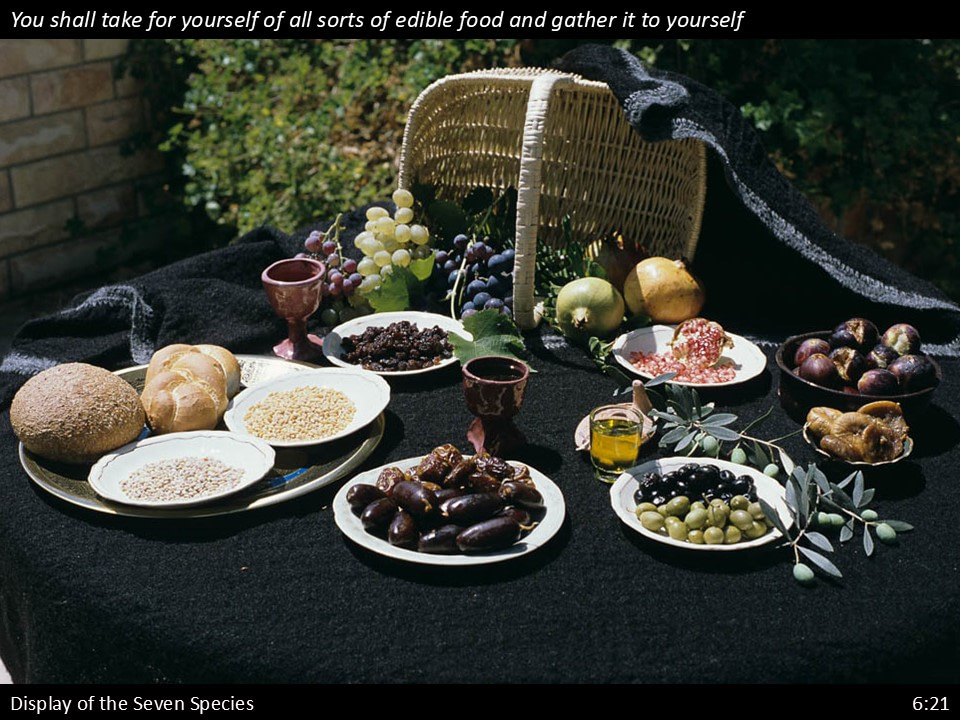
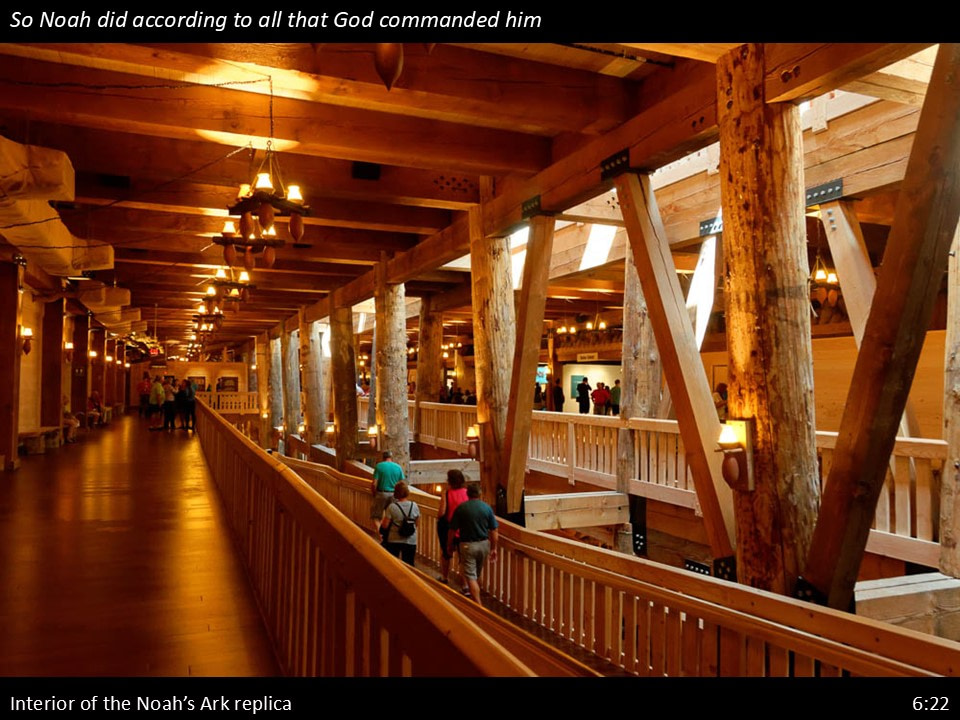
Verses 1-4 serve as a transition from Chapter 5’s description of the lines of Adam’s descendants to God’s first great judgment of the earth.
- Mankind multiplied on the earth, and daughters were born to them.
- The “sons of God” saw they were beautiful and took any they chose as wives.
- The Lord cursed them, saying His spirit would not remain with man forever because they are corrupt. Therefore, their days will be 120 years.
Note: There is great controversy among scholars over the correct interpretation of these verses, and in particular, what is meant by the phrase “sons of God.” There are three positions as to the meaning:
- They are heavenly beings.
- They are kings or men of high social standing.
- They are men from the Godly line of Seth.
Among conservative evangelical scholars, the consensus is the “sons of God” were descendants of the Godly line of Seth, and the “daughters of mankind” were the daughters of the line of Cain. The union between these lines resulted in the total corruption of mankind (2 Corinthians 6:14).
- Nephilim were on the earth when the sons of God took the daughters of mankind who bore them children.
Note: Verse 4 is another confusing verse to interpret. The question is, who are the Nephilim and what is their interaction with the sons of God and the daughters of mankind? The word “Nephilim” is translated “fallen ones” and could mean either spiritually/morally fallen, or angels fallen from heaven.
In verses 5-8, God passes judgment on mankind:
- When the Lord saw that mankind’s wickedness had spread, and his mind was on evil all the time, the Lord regretted that He had made man and was grieved in His heart.
Note: If your translation says “God repented” it does not mean God changed His mind, it means He was sorrowful or regretful.
- Noah found favor in the sight of the Lord.
Genesis 6:9-8:22
This section contains the account of Noah building the ark, the great flood that God sent as a judgment upon the earth, and Noah’s worship after the flood.
In verses 9-22, God commissions Noah to build the ark:
- Noah was a righteous man who walked with God. He was blameless among his contemporaries.
- Noah fathered three sons; Shen, Ham, and Japheth.
- God saw how corrupt the earth was.
- God told Noah He would destroy every creature because the earth is full of wickedness.
- God told Noah to build an ark and gave him specific instructions for its size and form.
- God told Noah He would bring a flood on the earth that would kill every creature.
- But, said God, I will make a covenant with you, your family, and their families that along with the animals in the ark, you will be saved.
- God told Noah to gather all the food they would need for themselves and the animals.
- And Noah did exactly as God had instructed him.
Note: The term “covenant” that God made with Noah is like a treaty or a contract. The Noahic covenant is God’s third covenant with mankind. The first was God’s covenant made with man in the garden of Eden (Genesis 1-28-30). The second was the Adamic covenant made with Adam after the fall of man (Genesis 3:14-19).
Genesis 7
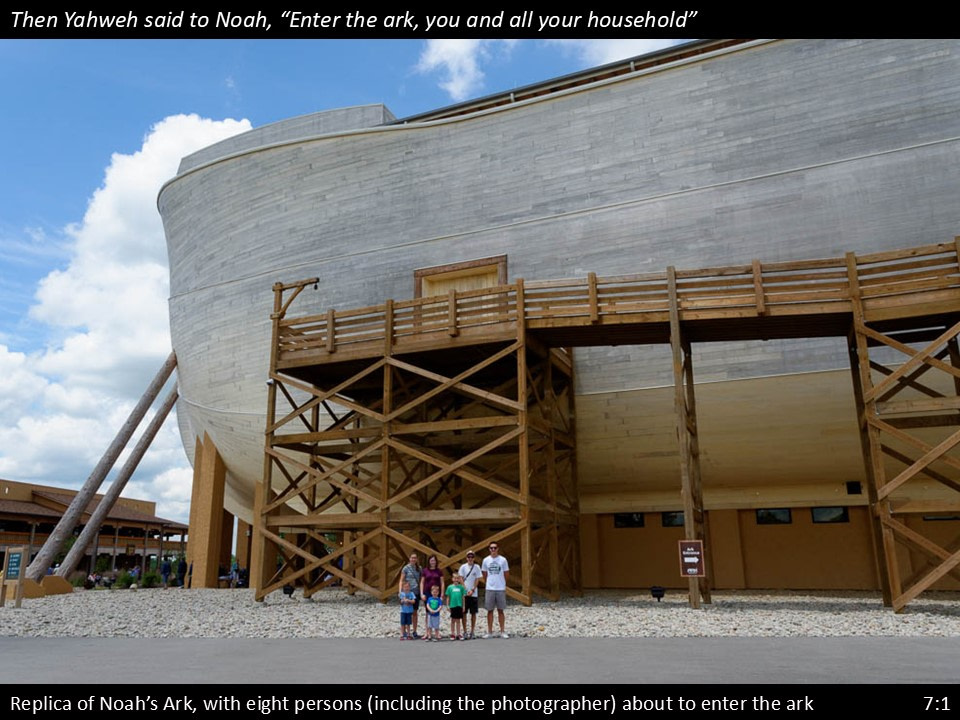
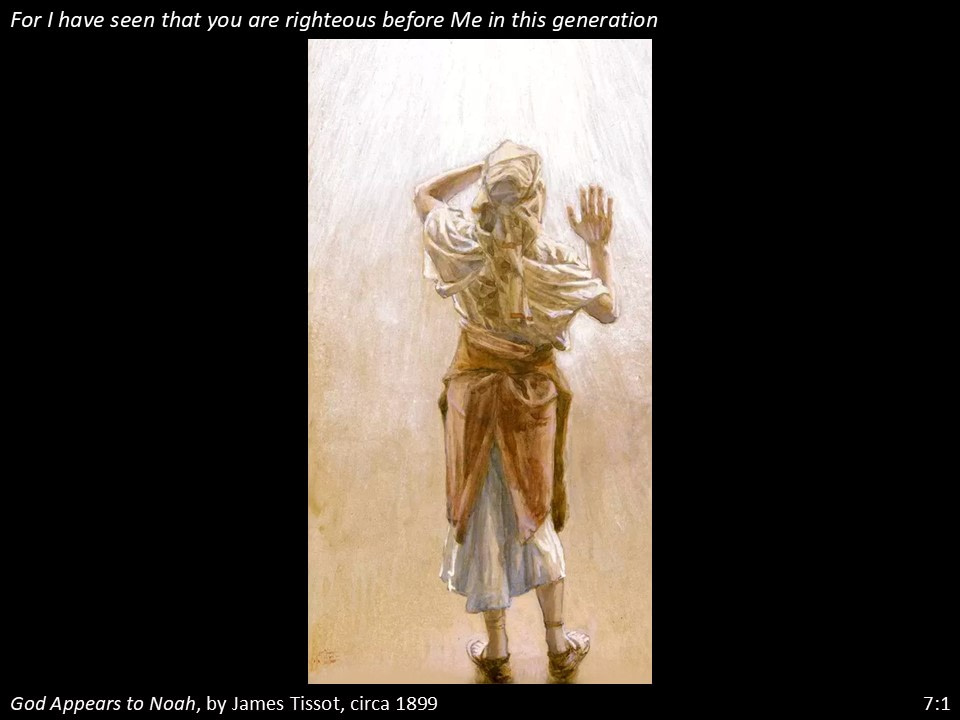
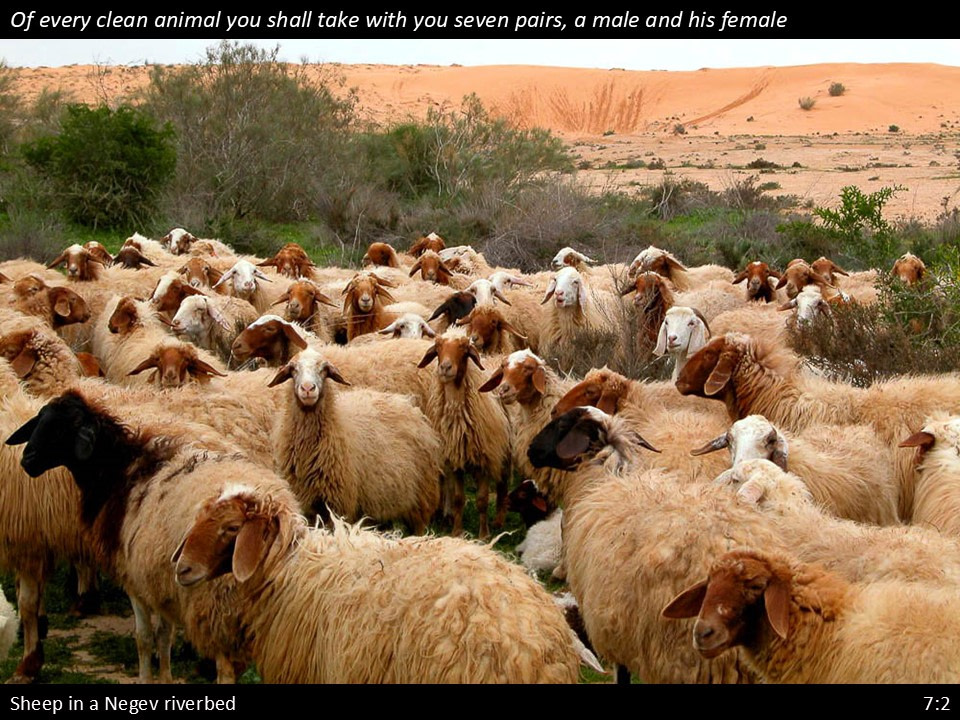
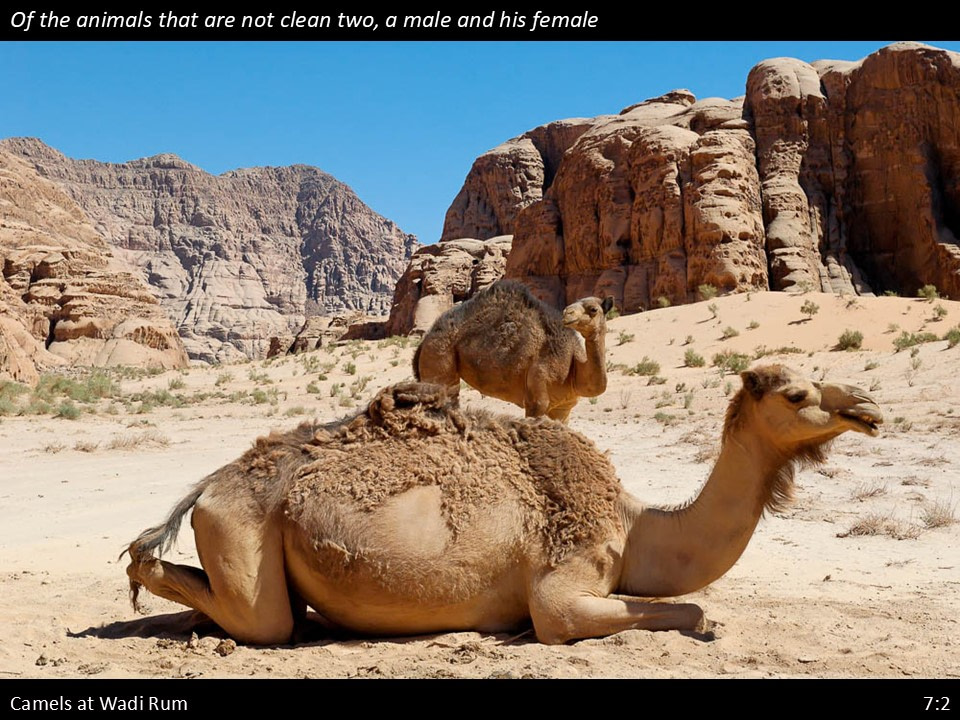
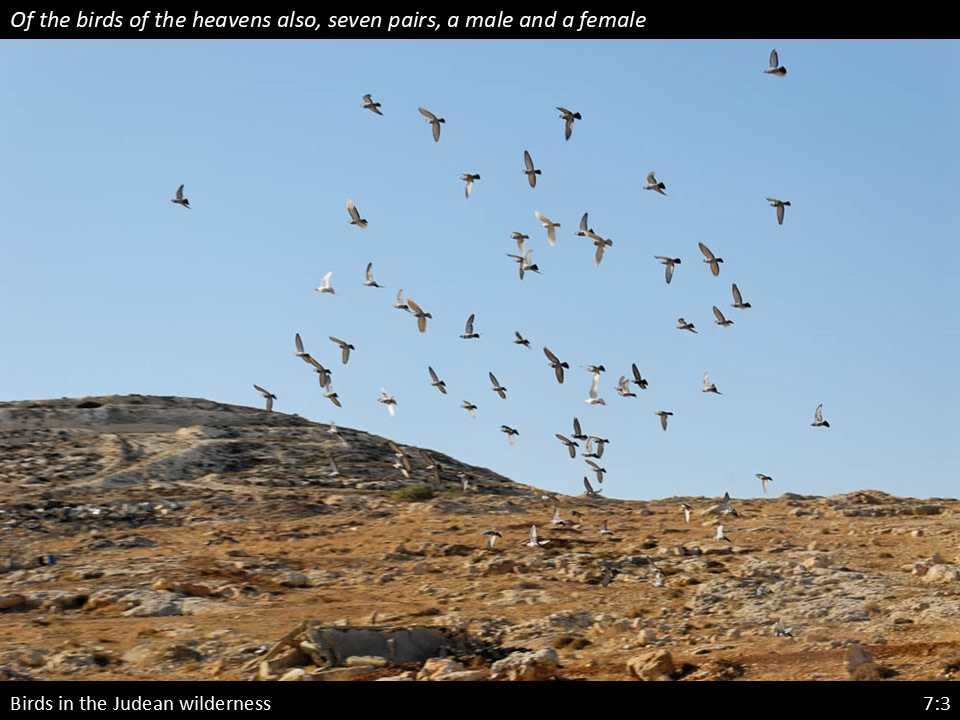
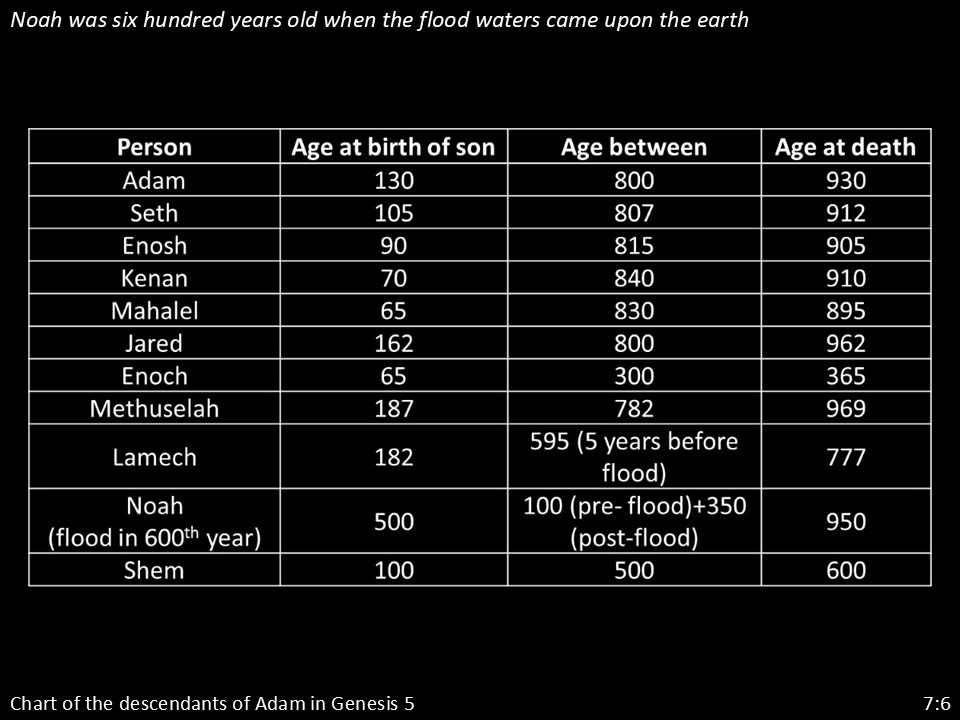
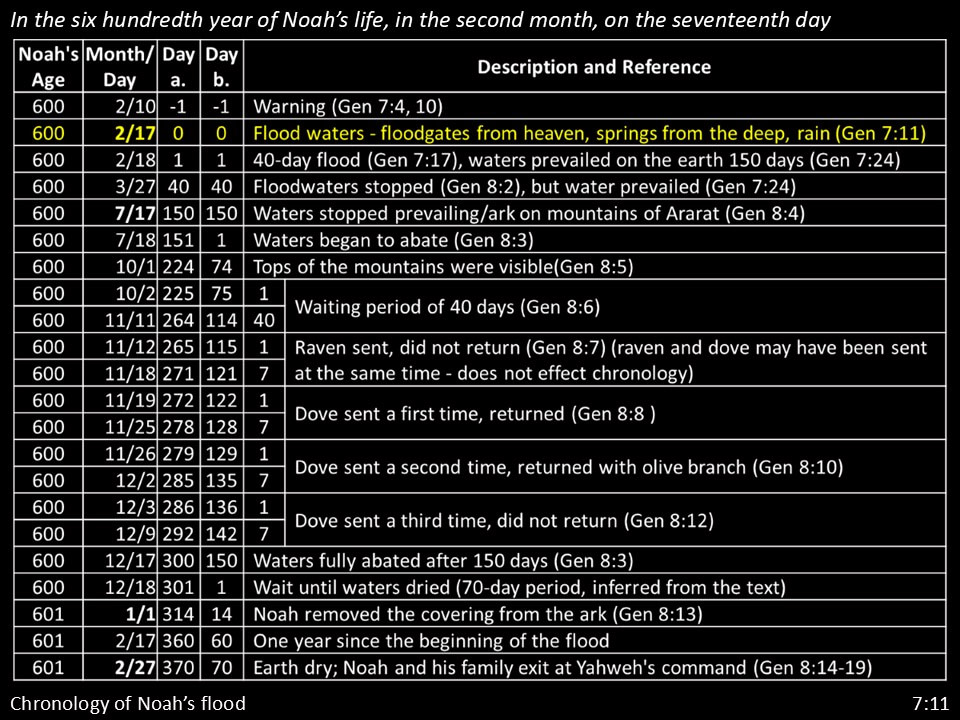
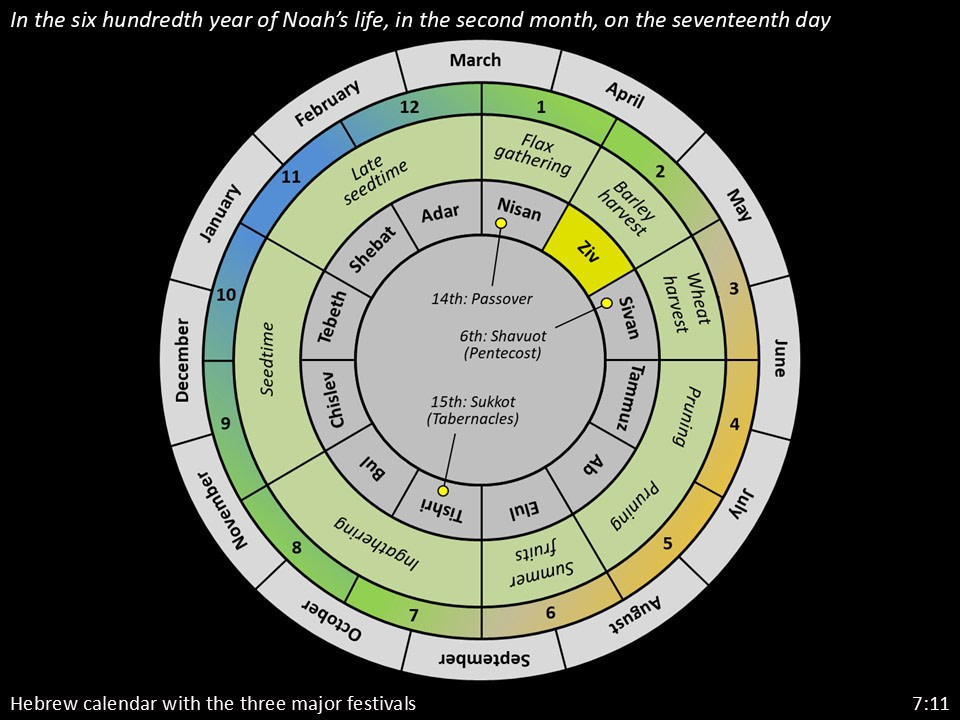
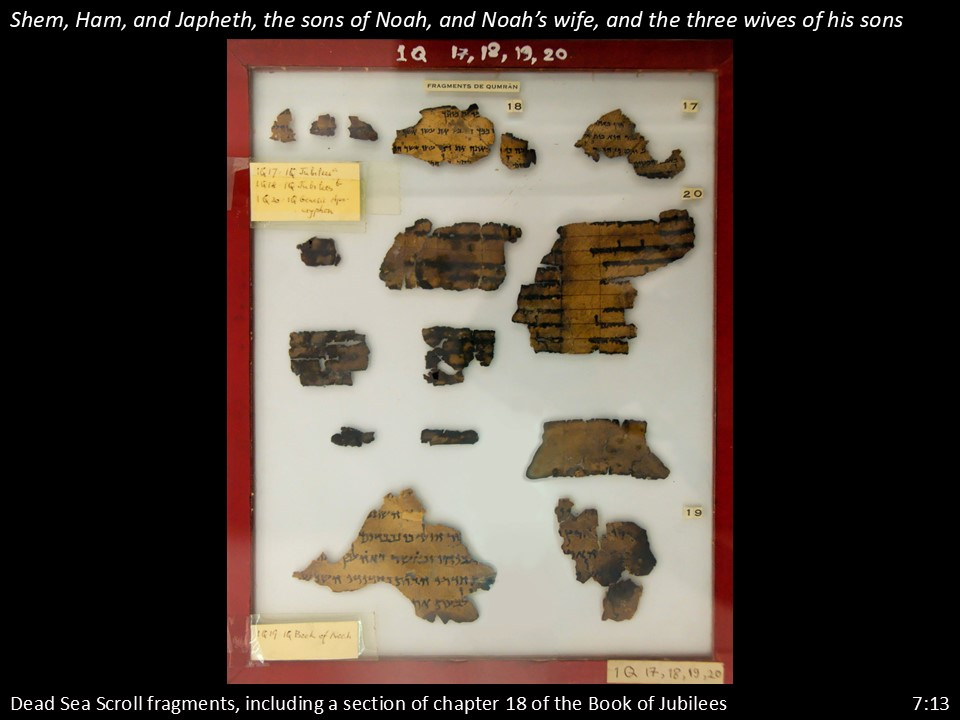
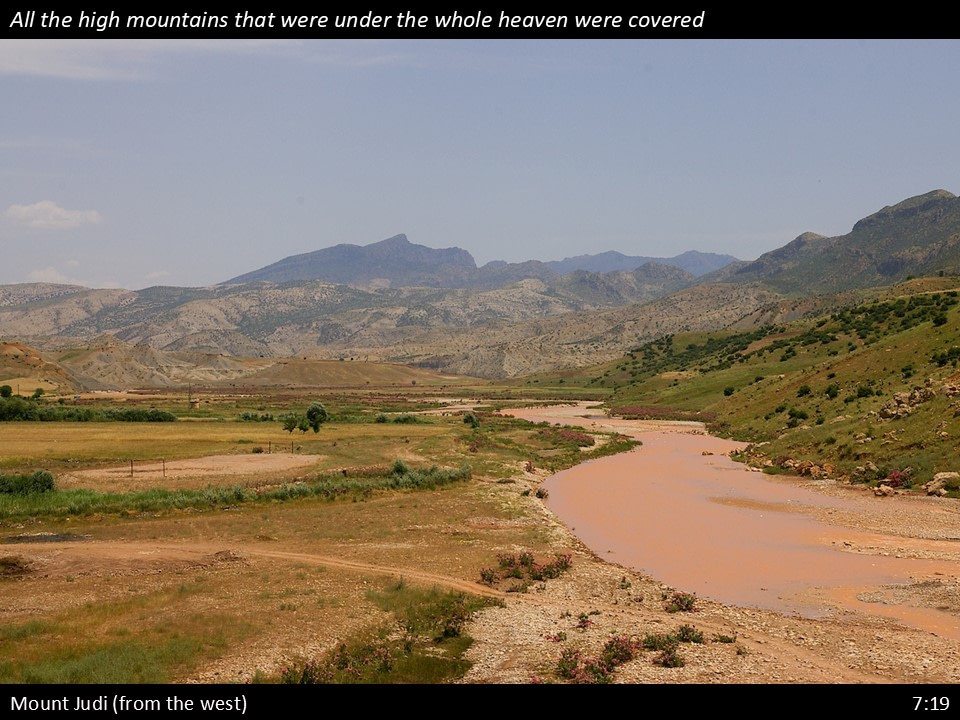
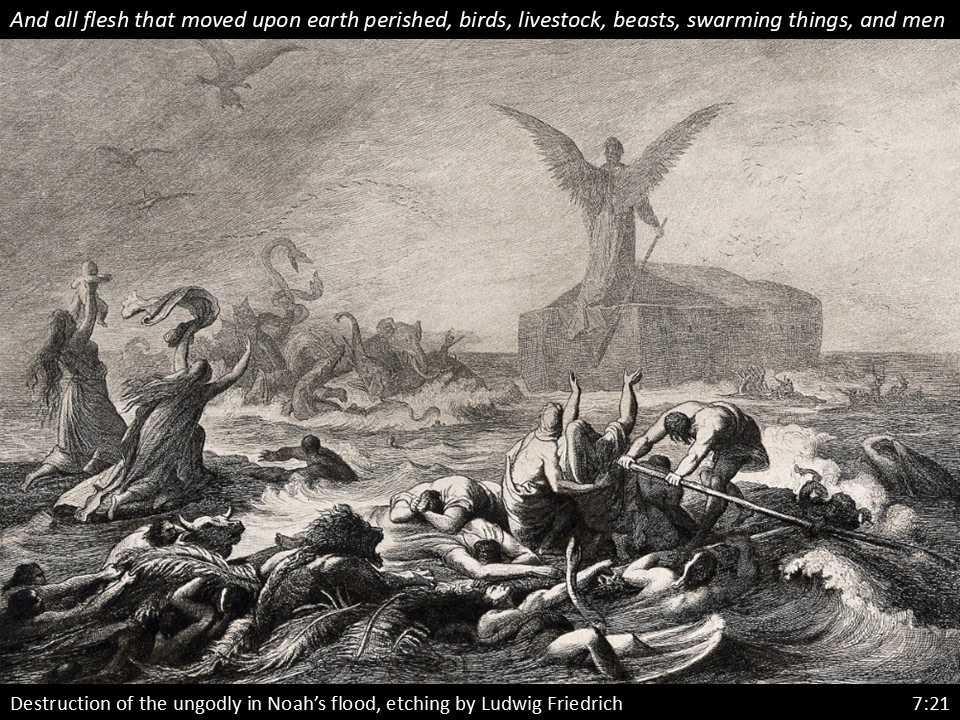
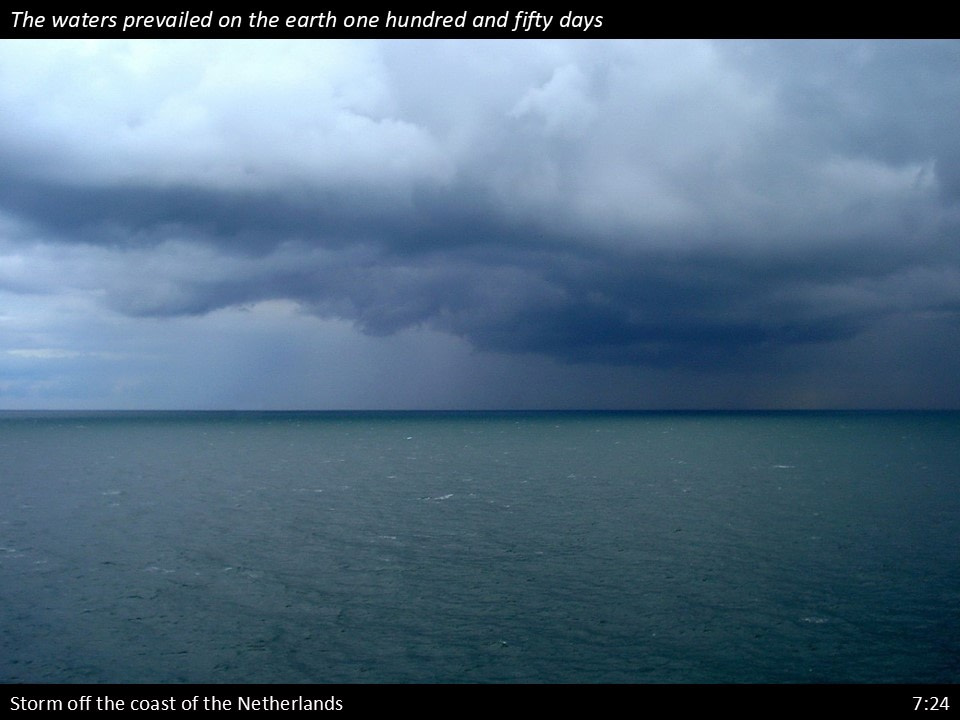
In verses 1-10, God commands Noah and his family to enter the ark in anticipation of the flood:
- God tells Noah and his family to enter the ark because they alone are righteous in this generation.
- Noah is to take seven pairs of all the clean animals, and two pairs of all the unclean animals into the ark with him.
- God says, in seven days, He will make it rain 40 days and 40 nights upon the earth and wipe out every living thing He had made.
- Noah did everything God commanded him.
- Noah was 600 years old when he and his family entered the ark.
- The rain started seven days later.
Note: The Ark and the floodwaters are a picture of God’s salvation through Christ and His judgment against sin.
In verses 11-24, the flood of judgment came:
- Noah was 600 years old when the flood came on the seventeenth day of the second month.
- The water came from two directions: the watery depths burst open, and rain fell from the sky for 40 days and 40 nights.
Note: It had not rained on earth before this.
- Noah and his wife, along with Shem, Ham, and Japheth with their wives, were in the ark along with all the animals, just as God had commanded them.
- Then the Lord shut them in the ark.
- The water continued for 40 days, and the ark floated on the surface of the water.
- The water surged even higher until even the mountain tops were covered by more than 20 feet.
- Just as God said, every creature on dry land perished; mankind, livestock, creatures that crawl, and birds.
- Only Noah and those with him in the ark were saved.
- The water surged on the earth 150 days (40 days of rain plus 110 more days).
Some thoughts for further consideration:
- There are some who believe that man is born good and learns evil. But the account of Adam and Eve, Cain, and the subsequent generations who became so evil that God determined to wipe them out speaks to the fallen, sinful nature of man.
- Noah was the only righteous man on earth who walked with God. He was the one man who had a pure heart amidst so many filled with evil intentions. What an incredible testimony!
What did you notice in your study today? Feel free to visit the website and leave a question or a comment.

